Bureau of Lost Culture
Episodes
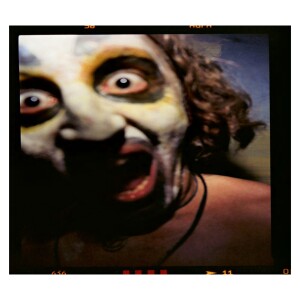
Sunday May 11, 2025
Ibiza and The Meteoric Rise of Club Culture - From Arty to Party
Sunday May 11, 2025
Sunday May 11, 2025
Sunshine + Love, Beats + Drugs
How did a sleepy island off the coast of Spain, metamorphose from an artistic, countercultural haven into the global epicentre of electronic dance music, lighting the touch paper that caused the explosion of club culture?
Alexis Petridis, chief music writer for The Guardian, and Dean Chalkley, one of the UK’s leading photographers of British subculture (both seasoned ravers), witnessed this extraordinary rise from the underground at Mixmag, the clubbers’ bible, and have documented the subsequent transformations.
Alexis takes us on a trip through the island’s bohemian past and tells how its unique combination of natural beauty, 60s counterculture and 70s glamour set the scene for an extraordinary pop cultural explosion in the 80s and 90s that would resonate through the Western world.
The photographs in Dean’s new book ‘Back in Ibiza 1998 - 2003’ , taken in the heat of many magic moments, capture the golden age of happy, all-in-it-together, 24 hour party people, bacchanalian excess, and sunkissed beach life the island offered before the corporate monsters of superstar DJs, big brands and VIP lounges swallowed it whole.
For more on Dean
Alexis on music
Alexis on Club Culture
Images courtesy Dean Chalkley
#BureauOfLostCulture, #IbizaClubCulture, #Rave, #BalearicBeats, #90sClubScene, #80sClubScene, #IbizaHistory, #AcidHouse #CultureUnderground, #Dancemusic, #LostCultureFound,#mdma, #pasha, #nickyholloway, #superstardjs
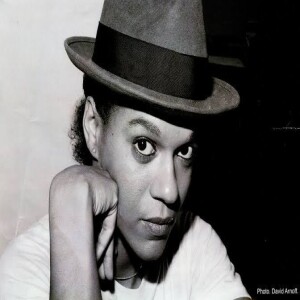
Wednesday Apr 16, 2025
Becoming Black: A 2-Tone Story
Wednesday Apr 16, 2025
Wednesday Apr 16, 2025
"I was never going to be a nice little white girl" she says.
Instead, she became an underground star, had hit records with the 2-Tone band The Selector, became a style-icon, an actor, a TV Presenter - and author.
Whilst Margaret Thatcher was reshaping Britain and promoting her very own particular vision of what it meant to be British, in the urban jungle of Coventry, a young woman whose image couldn't be more different than Maggie's, was presenting a radically different vision of what it meant to be British
Belinda Magnus, born on 23 October 1953 was given away as the baby of a white unmarried mother and an unknown black father. She was adopted by a white family and re-named Pauline Vickers. Growing up in a completely white neighbourhood as the only person of colour, she experienced first-hand the often racist attitudes of the time.
She came to the Bureau to talk about all that, how she overcame it, her life as a star of the 2-tone musical scene with her band Selecter, and how, along the way, she became Pauline Black
For more on Pauline
Image by Dean Chalkley
#PaulineBlack
#2ToneRevolution
#BureauOfLostCulture
#SkaPunkHistory
#TheSelecter
#WomenInMusic
#PunkAndPolitics
#CulturalResistance
#BlackBritishVoices
#MusicAsProtest
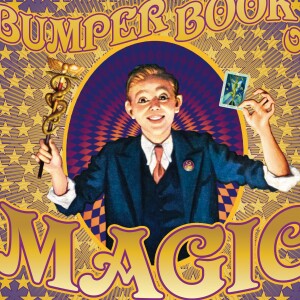
Tuesday Apr 01, 2025
Alan Moore on Magic
Tuesday Apr 01, 2025
Tuesday Apr 01, 2025
Alan Moore first gained recognition in the 1980s with his work for the comic 2000 AD, and DC Comic's Swamp Thing. He went on to create Watchmen, V for Vendetta, Batman: The Killing Joke, From Hell, an extraordinary take on the Jack the Ripper story, and The League of Extraordinary Gentleman.
He's often been at odds with publishers and with Hollywood, and in recent years has removed himself from the mainstream, focusing on writing novels, esoteric pursuits, and the practice of a particular kind of Magic.
This is a slightly unusual episode.
It's a recording of an event we held last October as part of our London Month of the Dead festival. It features, Alan in conversation with the writer Gary Lachman and the artist John Coulthart.
The occasion was the publication of 'The Bumper Book of Magic'. a kind of modern grimoire, which Alan had written with his friend the late Steve Moore (no relation), another writer of comics and fellow magic practitioner. It is a book that took 20 years to come to publication. John Coulthard was the main artist and designer of the book.
Alan is somewhat of a recluse these days so it was great to have him with us to talk about the book, about his friend Steve Moore, about his practice of Magic, and about the unconscious, dreams, consciousness and creativity.
Gary Lachman, a previous guest on this show, was once the bass player for Blondie before he put down the plectrum and picked up the pen, gave up rock'n'roll for writing, and has become the U.K.'s foremost writer on the Esoteric
John Coulthart is a wonderful graphic artist who worked with Alan on many projects and is a cultural phenomenon in his own right
We also hear from the audience with questions to Alan about his practice of magic.
Our previous episode with Alan on Counterculture
#counterculture, #alanmoore, #johncoulthard, #garylachman, #dreams, #magic, #magick, #magik, #paracelsus, #glycon, #stevemoore, #2000AD, #grimoire
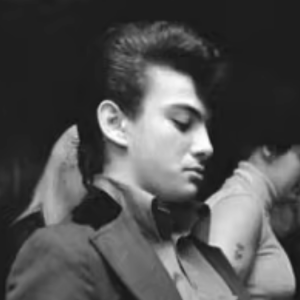
Saturday Feb 01, 2025
The Birth of British Youth Culture
Saturday Feb 01, 2025
Saturday Feb 01, 2025
Teddy Boys (and Teddy Girls)emerged in Britain in the early 1950s, becoming the UK's first distinct youth subculture.
Born in the aftermath of World War II, these working-class teenagers rejected post-war austerity and embraced a bold, rebellious style of dandyish suits, long drape jackets, narrow trousers, velvet collars, patterned waistcoats - and of course pomaded quiffed hair for the boys and equally sharp threads for the girls.
Musican and writer Max Decharne, author of 'Teddy Boys: Post-War Britain and the First Youth Revolution’, came to the Bureau to talk about the Teddys - and about Mods, Punk, the masssive influence of Bill Haley's Rock Around the Clock and of the impact the working class have had on British fashion.
The Teds became notorious in the media - associated with violence, for clashes with rival gangs and for their alleged involvement in the 1958 Notting Hill riots. But was that really the case? Or was it because, as working class upstarts they rattled the middle and upper class establishment?
Embracing American rock'n'roll, they became the foundation for future youth movements, proving that teenagers could form their own cultural identity, shaping Britain’s rock and roll scene and inspiring later subcultures like the Mods and Rockers.
For More on Max
For his music
For more on the book
Ken Russell's wonderful images of Teddy Girls
#teddy #teddyboys #teddygirls #quiff #rock'n'roll #billhaley #rockaroundtheclock #streetstyle #youthculture
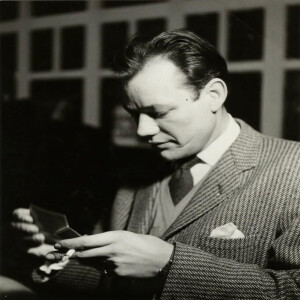
Tuesday Jan 21, 2025
Soho Night + Day
Tuesday Jan 21, 2025
Tuesday Jan 21, 2025
Scar-faced, ex-jailbird Frank Norman was part of the '50s and '60s Soho bohemian set and friends with Francis Bacon, Lucien Freud, Dylan Thomas and other habitues of the infamous Colony Room club.
After being abandoned as a child, growing up in institutions, and working as a fairground worker, he landed in Soho, became a petty criminal and spent time in prison where he learned to paint and write.
Back in Soho on leaving jail, astonishingly he became a succesful author, writer of the smash hit cockney musical 'Fings Aint What They Used To Be’, the acclaimed prison memoir Bang to Rights, and several novels - but never painted again.
In the early '60s he penned 'Soho Night and Day', a evocative survey of the area in its seedy, cosmopolitan prime, with photographs by his pal Jeffrey Bernard (later to become the most famous alcoholic in London).
Frank's grandson, Joe Daniel, came to talk Bureau to talk about him and about the bohemian low-life of Soho in the '50s and '60s.
If you are listening to this in early 2025, and can be in London, we have curated an exhibtion in Soho of Frank's never before shown prison paintings:
See BEHIND BARS- Frank Norman’s Prison Paintings for details
The republished wonderful Frank Norman and Jeffrey Bernard book Soho Night and Day
#soho #london #bohemian #colonyclub #colonyroom #Lucien Freud, #FrancisBacon #DylanThomas #FrankNorman #JeffreyBernard #murielbelcher #outsiderart
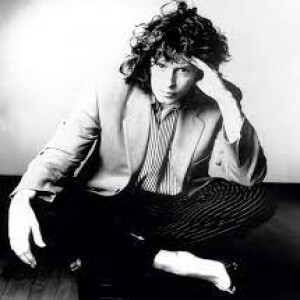
Tuesday Jan 07, 2025
Spirit, Soul and Rock 'n' Roll - with Mike Scott
Tuesday Jan 07, 2025
Tuesday Jan 07, 2025
The Waterboys' MIKE SCOTT grew up in the '60s in Edinburgh and said: “I accepted the incredible happenings of that decade — with all its rapid evolution, colour, revelations and magic — as the normal order of things".
At the age of 4 he had his first mystical experience and remembers that from the minute he bought "Last Night in Soho" by Dave Dee, Dozy, Beaky, Mick & Tich in 1968 he knew he had to live a life in music.In the years since he has toured the world with The Waterboys and as a solo artist, had hit records with The Whole of the Moon, This is the Sea and Fishermans Blues and has released 15 albums.
Mike has been unashamedly open about the importance of spirituality in his life - even when that has been deeply unfashionable in the mainstream culture.
Now, The Waterboys have a new record about to land. It features Bruce Springsteen, Steve Earle and Fiona Apple and it's a song cycle around the life of legendary actor and countercultural polymath Dennis Hopper.
Mike came to the Bureau to talk about all of that, his time at the Findhorn Foundation, Life, Death and Dennis Hopper - and much more.
For Mike and his work, music and adventures
Universal Hall
Findhorn Foundation
#thewaterboys #mikescott #brucespringsteen #findhorn #findhornfoundation #steveearle #fionaapple #ladbrokegrove #thewholeofthemoon #dennishopper
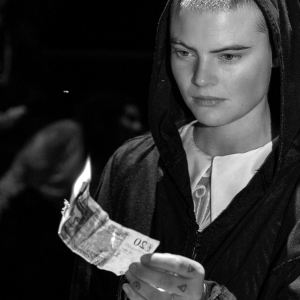
Sunday Dec 08, 2024
The Man Who Burns Money
Sunday Dec 08, 2024
Sunday Dec 08, 2024
This morning I sat in my house, took a twenty pound note from my wallet, lit a match and set the note on fire.
Why? How did I feel as I watched it burn? Was it a waste, an immoral or stupid thing to do - or was it a deeply countercultural act?
Jon Harris, came to the Bureau to talk about his life - as a pornographer, as a rock 'n' roll tour manager, as a bankrupt - and, most importantly, as The High Priest of The Church of Burn.
We try to understand what money is, what it might be and what burning it can mean.
We hear of Jon's own history of burning money and of the rites of The Church of Burn. Of course The KLF get a mention, as does Serge Gainsbourg and Youth of Killing Joke as we explore the history of the intentional sacrificial destruction of somethign that mainstream culture seems built around and compleltey obsessed with.
The Church of Burn
Jon's substack
----
I have often been asked about the music that plays during the Bureau episodes. Most of it is from two albums by The Real Tuesday Weld: 'Junskshop Melodies' (which will be released in 2025) and 'Songs For Crow' which has just been released. Detaisl HERE
#money #moneyburning #cash #currency #churchofburn #daisycampbell #johnhiggs #youth #killingjoke #klf #theklf #thekfoundation #sergegainsbourg
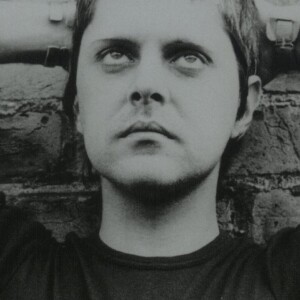
Tuesday Nov 12, 2024
The Cut Up Life of Genesis P-Orridge
Tuesday Nov 12, 2024
Tuesday Nov 12, 2024
Genesis P-Orridge was a performance artist, neo Pagan, Industrial music innovator, the co-founder of COUM, Throbbing Gristle and Psychic TV and an arch provocateur. He was variously described as a wrecker of civilisation, transgressive and blasphemous, accused of being a Satanist and of sexually abusing his children (a lie - in fact he was a loving father and grandfather), and claimed to be a threat to society. He could be both very alarming and very kind.
In later life Genesis became infamous with attempts to unite as a “pandrogyne”, a single entity, with partner Lady Jaye through the use of extreme surgical body modification intended to make them physically resemble one another
Filmaker David Charles Rodrigues, director of S/HE IS STILL HERE an extraordinary, moving film based around interviews made in the last months of Genesis's life, came to the Bureau to talk about the Cut Up technique, William Burroughs, Bryon Gysin, The Exploding Galaxy, industrial music, the Satanic Panic and much more in the life and death of a deeply countercultural artist.
#genesis p-orridge #throbbinggristle #coum #psychictv #thetempleofpsychicyouth #industrialmusic #templeofpsychicyouth #pandrogyne #coseyfannitutti #chrisandcosey #williamburroughs #bryongysin #cutup #thecutuptechnique #ica #censorship #transgressive #satanicpanic #ladyjaye #thexxplodinggalaxy
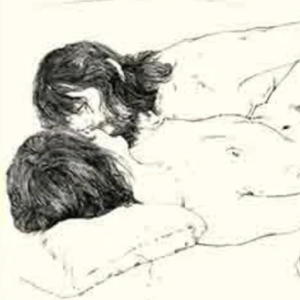
Tuesday Oct 15, 2024
The Man Who Wrote the Joy of Sex
Tuesday Oct 15, 2024
Tuesday Oct 15, 2024
The Joy of Sex was published in 1972 and for years, was rarely out of the bestseller lists, generating sequels, revised editions and a lot of imitators - so how could it be countercultural?
For two reasons: firstly that Dr Alex Comfort who wrote it was a deeply countercultural figure, and second, because its publication represents the moment when the sexual revolution of the countercultural years of the late '50s and ‘60s, threw off its remaining clothes and dived naked into the bourgeous middle class mainstream.
And it changed a lot of peoples’ live - well their sex lives at any rate.
Social justice journalist activist and anarchist Eric Laursen, author of Polymath: The Life and Professions of Dr. Alex Comfort, came to The Bureau to tell of the poet, novelist, doctor, biologist, gerontologist, anarchist, scientific humanist, public intellectual, pacifist and activist who also happened to write the world’s most famous guide to lovemaking..
For More on Eric
For More on Polymath: The Life and Professions of Dr. Alex Comfort
#sex #sexguide #thejoyofsex #alexcomfort #thesexualrevolution #counterculture #sexmanual #sandstone
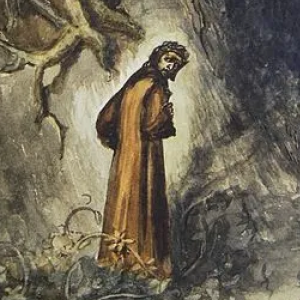
Monday Sep 16, 2024
The Underworld
Monday Sep 16, 2024
Monday Sep 16, 2024
“Imagination thrives in darkness”
We talk about The Undergound often at the Bureau - not London’s subterranean rail sytem, but the countercultural alternative society of the 50s, 60s, 70s and 80s.
But that is just one of the undergrounds - the underworlds - that are the subject of this episodeDizzying ossuaries, freakish creatures of the deep sea, astounding colors of agates, lava and crystals, mind bending organic structures of mycorrhizal fungi, caverns, crevices, burrows, bunkers, burial chambers, ghistly shipwrecks, religous hellscapes and surrealist dreamscapes, natural and constructed subterranean realms and the imagined and unconscious worlds of dreams and the human psyche.
Image Alchemist Stephen Ellcock came to take us on a deep dive journey down under with his truly astonishing, visually stunning guide book Underworlds, a volume in five sections covering both the real and the imaginary, moving between continents and time periods and disciplines such as philosophy, biology, art history and literature.
We talk of how the actual physical world beneath us has fed our fears, visions and imagination – and conversely, provoked us to imagine a mythic, esoteric, mysterious underground - the afterworld of the dead, of the fairies and of the psychogical unconscious.
For more on Stephen and his amazing work
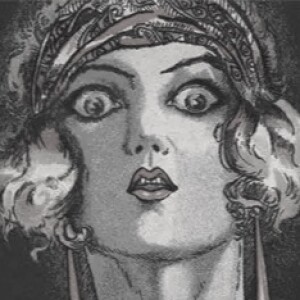
Sunday Sep 01, 2024
Dope Girls - The Birth of the British Drug Underground
Sunday Sep 01, 2024
Sunday Sep 01, 2024
*In 1918, Billie Carleton, a West End actress, came off stage, went partying with friends, returned to her flat and was found dead the next morning - apparently of a cocaine overdose. A few years later, Frieda Kimpton, a dancer in Soho bars, committed suicide - with cocaine.
These events blew up into a huge media dope drama - with a cast of characters includes villians - Brilliant Chang, a Chinese restaurant proprietor and Edgar Manning, a black jazz drummer - and victims, Billie, Frieda and the other 'Dope Girls'.
*Around them, in the Soho streets off Shaftesbury Avenue, there swirled a raffish group of seedy and entitled hedonists. Britain was horrified and fascinated, and so the drug underground and the moral panic about it, was born amid a gush of exotic tabloid detail.
*MAREK KOHN whose newly revised cult classic Dope Girls has inspired an upcoming BBC TV series, came to the Bureau to tell us how the panic about drugs that kicked off on the 1920s (bringing in drug laws that are still with us today), was more about the fear of newly emancipated women in society and an imagined menace of foreigners bound on enslaving them, than about any damage done by the drugs themselves.
*More about Dope Girls HERE
*More about Marek HERE
*More about the upcoming BBC series Dope Girl
#drugs #psychedelics #cocaine #opium #morphine #druglaws #counterculture #drugculture #drugunderground #soho #overdose #dopegirls #dope #drugunderground
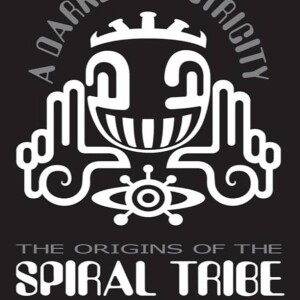
Sunday Jul 28, 2024
Forward the Revolution - with Spiral Tribe
Sunday Jul 28, 2024
Sunday Jul 28, 2024
They helped inspire a whole generation of young ravers and lit the fuse for what was to blow up with Technival and Burning Man - as well as more mainstream festivals across Europe and the US - but their (counter)cultural contribution remains largely unacknowledged in their home country.
Marc Angelo Harrison, one of the orginal founders of the people’s sound system, techno, free party, DJ collective Spiral Tribe came to the Bureau to tell some of their story - and about his own journey up and down the spiral. His book A Darker Electricty published by uber-cool electronic music publisher Velocity Press is a rollocking, rumbuctious, beautifully written testament to a deeply countercultural spirit and time.
We dive deep into the free party scene of the early 90s and talk squatting, sound systems, Ladbroke Grove, doing things for free, police brutality, the 'new age’ travellers, the tragedy of Castle Morton, ongoing inspiration, community - and the power of bass..
A Darker Electricity- Mark's book
A Darker Electricity- The Audio book
Free Party: A Folk History - Aaron Trinder’s wonderful documentary of the last 80s and early 90s free festival scene
#festivals #counterculture #freefestivals #spiraltribe #squatparty #travellers #newagetravellers #battleofthebeanfield #hippie #castlemorton #techno #drugs #lsd #soundsystem #raveculture #raves #breakbeat #stonehenge

Wednesday Jun 26, 2024
The Queer Life of Pop - with Jon Savage
Wednesday Jun 26, 2024
Wednesday Jun 26, 2024
How Queer Culture Shaped Pop Culture
"The 1972 version of David Bowie didn’t spring from nowhere. Although he refused to affiliate himself explicitly with gay liberation, he had found both artistic and social inspiration in the gay world, in particular the renewed sense of freedom and possibility that rippled through the British gay subculture in the early 1970s."
We finally lured the award-winning, bestselling author, pop-culture, punk penman Jon Savage to the Bureau to talk about his life and epic new book The Secret Public: How LGBTQ Resistance Shaped Popular Culture (1955–1979)
It's an electrifying, massively entertaining - and at times, tragic - look at key moments in music history between 1955 and 1979, which helped move gay culture from the margins to the mainstream and changed the face of pop forever – from the ambiguous sexuality of stars such as Little Richard in the 1950s through to David Bowie, glam rock and Sylvester’s ‘You Make Me Feel(Mighty Real)'.
We talked about all that, about Punk, Joy Division, Tony Wilson, Johnny Marr, Factory Records and about how Jon grew up in the London of the late '50s and '60s, how he became a writer during one of the most exciting times for music journalism in the '70s and '80s - and about his own Secret Public Life..
More on the book here
More on the compilation album here
More on Jon here
#homosexuality #sex #london #queer #gayliberation #musichistory #sexuality #gay #tomrobinson #gladtobegay #queerculture #counterculture #punk #comingout #homesexuality #joydivision #theclash #sex #johnnymarr #factoryrecords #johnnymarr #faberandfaber #littlerichard #glf #gayliberationfront #bisexuality #pride #london #queer #gayliberation #lgbtq #sexuality #gay #thesecretpublic #musicpress #gaydisco #jonsavage #thesmiths #bowie
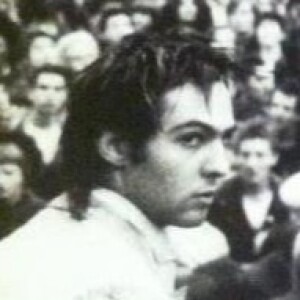
Tuesday May 28, 2024
Post-Punk Druidry - with Youth
Tuesday May 28, 2024
Tuesday May 28, 2024
*"Punk taught us the future had only just begun” he says
*For him that future was to include the bands Killing Joke, The Orb, Brilliant and The KLF; starting various record labels; hit records; producing and remixing a massive range of artists including Paul McCartney, The Verve, Tom Jones, Maria McKee, Kate Bush, Pink Floyd, Guns N' Roses, Primal Scream, Siouxsie and the Banshees, Art of Noise, Crowded House, Erasure, U2, INXS, and the Suns of Arqa- and a Grammy for his recent work with Toots and the Maytalls
*But running beneath it all is a deeply countercultural spirit.
*Uber-Music producer and druid Youth (Martin Glover)returned to the Bureau to talk about his life and times. We get deep into punk, post-punk, London as 'The City of Revelation', psychgeography, The Sacred Thames, squatting, the South London Arts Lab, druidry, turning Stonehenge off, having an epiphany, burning money, sampling other people's records, the second summer of love, the creative process, drugs - and, of course, counterculture.
Check out this playlist of just a selection of Youth's work and music.
https://music.apple.com/gb/playlist/youth-martin-glover-productor/pl.u-EzbdIa0z2vl
#psychogeography #psychedelics #theunconscious #consciousness #thepyramids #yout #counterculture #drug #lsd #acid #martinglover #theorb #psychedelic #klf #druidry #killingjoke #occult
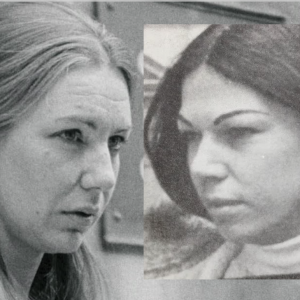
Tuesday May 14, 2024
The Women at the Heart of Britain's Biggest Acid Bust
Tuesday May 14, 2024
Tuesday May 14, 2024
*Julie Taylor was a police officer who gave her name to
'OPERATION JULIE', the biggest drug bust in UK history and one which resulted in the conviction of over a hundred individuals involved in the trafficking of LSD, including some of the most prolific chemists of the era.
*Christine Bott was a practising doctor living a classic 1970s rural countercultural life in mid Wales, growing organic vegetable, rearing goats and ministering to the local community. She also happened to be part of the biggest LSD manufacturing gang in UK history, an activity that led to her arrest under the Operation Julie bust and imprisonment amongst 'the 36 most dangerous women in Britain' - including the child murderer Myra Hindley.
*Whilst much has been made of Operation Julie in articles, books and even a musical in recent years, Christine's story, like many of those of women in the counterculture, has been largely sidelined - until now.
*Before she died, her friend KATE HAYES promised her that she would tell it - and she has kept that promise by publishing two books: 'The Untold Story of Christine Bott' and 'After Julie: The Kemp Tapes', the latter a record of the only interviews with Christine's partner Richard Kemp, the chemist who invented 'The Microdot' (generally recorded as the best LSD in Christendom.
*Both were driven by a desire to change the world for the better, to save the planet and, however naive their actions may have been, they held to that vision and paid the price for it.
*Kate came to the Bureau to tell us how it all came about and how Christine survived - and even thrived - despite the darkness of prison.
Its truly gripping stuff.
For more on Kate and the books
#tripping #psychedelics #theunconscious #consciousness #operationjulie #christinebott #counterculture #drug #lsd #acid #richardkemp #myrahindley #psychedelic #microdot #tripping #druglaw #timleary
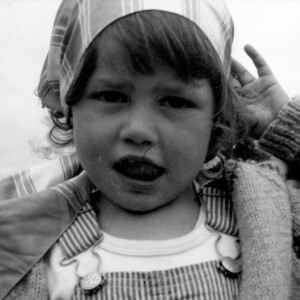
Sunday Mar 31, 2024
Child of the Commune
Sunday Mar 31, 2024
Sunday Mar 31, 2024
What was it like to live in a commune? What was it like to grow up in a commune?
NANCY THOMPSON came to the Bureau to tell us. She was born in The Shrubb Family Commune - one that was set up in a big old farmhouse in rural Norfolk in 1970 - and, remarkably, one that is still going today.
In the early to mid '60s many Western cities were magnets drawing the young and hip in from the regions, shaking off the austerity of the '50s, joining their urban peers in experimenting with new and radical ways of loving and living. Communes and squats sprung up all over places like London.
But as the '60s drew to a close, there was a reverse movement and many left the cities heading back out into the shires to try to build a new kind of sociey in the quieter, slower life of village and market town. Some settled in North Suffolk and South Norfolk, an open countryside of low hills and wide plains with few towns and many villages where a commune movement had been established from 1965.
Nancy's is a complex, tumultous tale - at times a rather bewildering tapestry of overlapping relationships and familes, the British class system, rural life, travellers, gypsies and the gentry, encounter groups, blackmail, rogue psychiatrists, lsd - and horses..
-------------
*For more on Nancy and her childhood in the commune, check out her Substack HERE
*For more on the British commune and intentional community culture of the 60s and 70s see below
The countercultural movement of the 1960s and 1970s in Britain gave rise to a surge of communal living experiments known as hippy communes or intentional communities. These collectives emerged as an alternative to mainstream society, rejecting consumerism, conventionality, and materialism in favor of a more liberated, eco-friendly, and cooperative way of life.
The origins of this communal living trend can be traced back to the mid 60s, when a confluence of social, political, and cultural factors created an environment ripe for such experiments. The rise of the hippie counterculture, and the burgeoning environmental and back-to-the-land movements all contributed to the growth of communal living arrangements.
One of the earliest and most influential British hippy communes was Findhorn in Scotland, established in 1962 by Peter and Eileen Caddy and Dorothy Maclean. Originally a small caravan park, Findhorn evolved into a thriving spiritual community centered around principles of sustainability, meditation, and harmony with nature. Its success inspired many other like-minded groups to establish their own communes across Britain.
As the movement gained momentum in the late 1960s, a wave of new communes emerged, each with its own unique philosophy and approach to communal living. Some, like The Diggers in Cornwall and the Laurieston Hall community in Scotland, focused on self-sufficiency through organic farming and sustainable living practices. Others, like the Freestone community in Essex and the Newbold Trust in Worcestershire, emphasized artistic expression, alternative spirituality, and personal growth.
Many of these communes adopted a back-to-the-land ethos, seeking to reconnect with nature and escape the constraints of urban living. They often established themselves in rural areas, repurposing abandoned farmhouses, old mills, or purchasing inexpensive land to build their communities from scratch. This allowed them to embrace a more self-reliant and environmentally conscious lifestyle, growing their own food, generating their own energy, and living off the land as much as possible.
While each commune had its own unique character and rules, they shared several common principles. Communal living, non-hierarchical decision-making processes, shared resources and responsibilities, and a commitment to peace and environmentalism were hallmarks of these communities. Many also embraced alternative lifestyles, such as polyamory, nudism, or open relationships, challenging traditional societal norms.
As the 1970s progressed, the hippy commune movement faced various challenges, including internal conflicts, financial struggles, and external criticism from more conservative segments of society. Some communes disbanded or evolved into more structured communities, while others managed to endure and adapt to changing times.
One notable example of a long-lasting commune is Braziers Park in Oxfordshire, founded in 1950 and still active today. While not initially a traditional hippy commune, it embraced many of the same principles in the 1960s and 1970s, becoming a hub for alternative living, education, and environmental activism.
Another enduring community is the Findhorn Foundation, which has grown from its humble beginnings into a thriving eco-village and spiritual center, attracting visitors and residents from around the world.
Beyond the more well-known communes, countless smaller collectives and intentional communities also emerged during this period, often existing independently or flying under the radar. These included urban squatting communities, housing co-operatives, and alternative living arrangements that embraced the communal ethos without necessarily adopting the full-fledged "hippy" lifestyle.
These communities served as laboratories for experimentation, pushing the boundaries of what was considered acceptable or possible, and leaving an enduring legacy that continues to influence various aspects of modern life.
Many of the principles and practices pioneered by these communities, such as sustainable living, cooperative decision-making, and alternative education, have been adopted and adapted by various organizations and movements.
The communal living ethos has remained alive, albeit on a smaller scale, with contemporary intentional communities and eco-villages continuing to explore alternative ways of living and coexisting with nature.
#communes #counterculture #findhorn #findhornfoundation #utopia #alternativecommunities #intentionalcommunities #esoteric #hippie #shrubbfamily #globaltruckingcompany #drugs #lsd #psychiatry
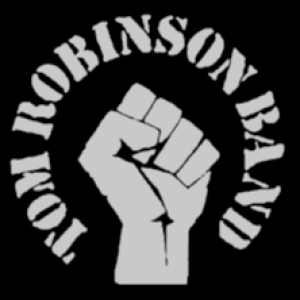
Sunday Mar 17, 2024
Liberation Part 2: Glad to be Gay
Sunday Mar 17, 2024
Sunday Mar 17, 2024
Being the further adventures of English musician broadcaster and LGTBQ activist TOM ROBINSON, as he gets deeply involved in the gay counterculture of London in the '70s whilst on his journey to having a huge hit with the song 2-4-6-8 MotorwayWe hear about the genesis of another hit - (Sing if You're)Glad to Be Gay - a remarkable, unprecedented protest song that climbed into public consciousness in the late 70s (despite the best efforts of some in the establshment), and about Tom's later hit War Baby.
We talk about the desperate times in between, about his activism - not only for the queer commmuity but as part of the Rock Against Racism movement - and how he had to face one his greatest challenges in coming out for a second time, risking the disapproval of the very community he had fought for for many years…
And we learn about Stonewall, the UK’s ’Sus Law' and get some terriffic tips for songwriters aspiring stars..
For More on Tom
For More on Glad to Be Gay
#homosexuality #sex #suslaw #section28 #stonewall #glf #gayliberationfront #bisexuality #pride #pridemarch #london #queer #gayliberation #quaker #sexuality #gay #tomrobinson #gladtobegay #suicide #counterculture #cafesociety #comingout #homesexuality #morality
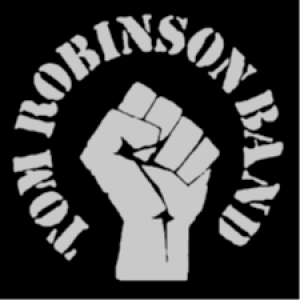
Tuesday Mar 05, 2024
Liberation Part 1: Coming out in the Counterculture
Tuesday Mar 05, 2024
Tuesday Mar 05, 2024
TOM ROBINSON is an English songwriter who rose to fame in the 70s as an LGBT and anti-racist campaigner. He has released over 20 albums and is an award-winning much-loved broadcaster who has made many programs on all six BBC radio channels.
In this, the first of two programs, we trace his story from troubled youth through a suicide attempt and recovery in an alternative community to coming out in the gay counterculture of '70s London.
We hear about his early activism and music, signing to Konk records with Ray Davies of The Kinks and his journey toward a huge hit with the song 2-4-6-8 Motorway.
Next time: the writing of the extraordinary, perennial protest song Glad To Be Gay, more activism, more hits with War Baby and Listen to the Radio and taking further risks on the way to becoming who you really are.
Tom's first band Cafe Society
For More on Tom
#homosexuality #sex #london #queer #gayliberation #quaker #sexuality #gay #tomrobinson #gladtobegay #suicide #counterculture #cafesociety #comingout #homesexuality #morality
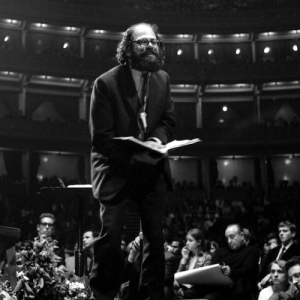
Saturday Feb 17, 2024
The Beat Goes On: The Sounds of Allen Ginsberg
Saturday Feb 17, 2024
Saturday Feb 17, 2024
YOUTH, producer of a huge range of artists (including Kate Bush, Crowded House, The Orb, KLF, The Verve, Guns ’n’ Roses and Primal Scream) and Jesse Goodman of the Allen Ginsberg Estate come to the Bureau to talk of the beat poet’s impact on music and the British counterculture.
We hear about Youth's 'Iron Horse' project and two albums of interpretations of Ginsberg's Fall of America poems by an astounding range of artists and we get deep into counterculture, the power of poetry, creativity and the possibility of a third summer of love..
--
Youth and Jesse will be with us in March, when we are presenting a program of happenings to celebrate Ginsberg's London Life.
See the EVENTS page for full details.
--
In May 1965, Allen arrived in London and gave a free reading at Better Books in Charing Cross Road. It was an event described by poet-provocateur Jeff Nuttall as "the first healing wind on a very parched collective mind” and one that provided the impetus for the International Poetry Incarnation at Royal Albert Hall, a hugely significant catalyst for the first British Summer of Love.
Music featured prominently in Ginsberg’s work - both in his self-accompanied performances and live collaborations with artists including Dylan, Paul McCartney and Patti Smith - and in the inspiration it has had on the wide range of musicians who have set it to music.
Ginsberg In London Events
Youth’s Iron Horse Album
Youth at The Horse Hospital March 15th
The Fall of America albums Volume 1 and Volume 2
Images courtesy of the John Hopkins Estate
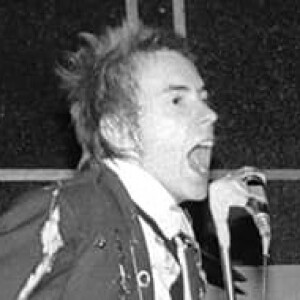
Monday Feb 05, 2024
London's Lost Street of Song
Monday Feb 05, 2024
Monday Feb 05, 2024
Britain’s own Tin Pan Alley, Denmark Street was once alive with the sound of hammered pianos, and sung melodies and choruses. Its songwriters knocked out tunes on the fly and rushed to the street to sell them to pay for the next round of drinks.In the '60s, The Beatles, The Rolling Stones and The Kinks came here, so did Donovan and Jimmy Page, Eric Clapton and Elton John, Jimi Hendrix and Jeff Beck. A popular rendezvous was La Gioconda, an Italian cafe which most visited at some point or other – David Bowie was said to practically live there.Later when Malcolm McLaren was looking for a rehearsal space for The Sex Pistols, he was delighted to find room in Denmark Street, installing his upstarts in the heart of the traditional music industry - like Greek soldiers inside the Trojan Horse.
Journalist Pete Watts returns to The Bureau to tell us tales of this lost street of dreams - and at least of one nightmare.
Pete's wonderful book on Denmark Street is HERE
#hipgnosis #pink floyd #london #pop music #london #musichistory #counterculture #soho #musicpublishing #music #1960s #jimihendrix #thesexpistols #davidbowie #the kinks #the beatles #DenmarkStreet #tinpanalley
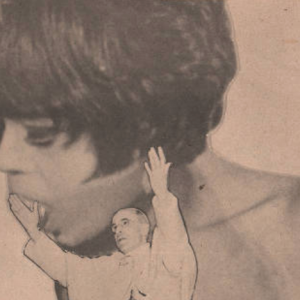
Saturday Jan 20, 2024
Countercultural Libido: A History of 'Perversion'
Saturday Jan 20, 2024
Saturday Jan 20, 2024
Warning: this episode contains discussions of sexual and other adult themes.
Julie Peakman is a historian of eighteenth-century culture who specialises in the study sexuality and pornography.
She is the author of 'Sexual Perversions, 1670-1890', 'Whore Biographies 1700-1825', The Development of Pornography in 18thC England' and many other books.
She came to the Bureau to discuss her latest: 'The Pleasure's All Mine - A History of Perverse Sex' which contains many affecting stories of how benign sexual difference has, in the past, lead to what we would now perceive as unjust and brutal persecution.
'Perversion' has been defined as 'showing a deliberate and obstinate desire to behave in a way that is unreasonable or unacceptable' or 'contrary to the accepted or expected standard or practice' - rather like 'counterculture'.
It has at different times included masturbation, male and female homosexuality, cross-dressing, bestiality, sadomasochism, necrophilia, incest, exhibitionism, voyeurism, fetishism, even straight-up vanilla heterosexual sex in certain circumstances.
Julie's conviction is that the very word and concept of 'perversion' has reached its expiry date - we discuss.
#perversion #sex #london #pornography #fetish #bdsm #sexuality #gay #necrophilia #incest #masturbation #bestiality #prostitution #flagellation #homesexuality #morality
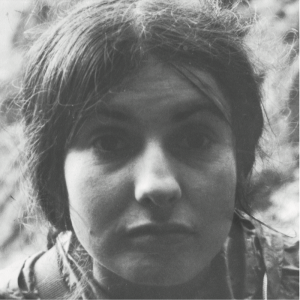
Monday Jan 08, 2024
The Incredible String Band Part 2: Inside Looking Out
Monday Jan 08, 2024
Monday Jan 08, 2024
*In this, the second of a two parter, we hear more of the crazy countercultural life and times of The Incredible String Band - from the inside looking out - with Rose Simpson
*Rose was one quarter of the band during what many regard as their creative and countercultural peak in the late 60s and early 70s.
•Her memoir 'Muse, Odalisque, Handmaiden' is an incredible story, relating how she rocketed (as a student without any particular interest in music or the counterculture), via an accidental meeting in a Scottish mountain cottage, to photoshoots in American Vogue and playing at Woodstock - and then came all the way back again.
*It's a fascinating tale, not just because the ISB were fascinating in themselves, but because it is beautifully told with a wealth of detail about a time that is usually dominated by mens' voices.
•She had many psychedelic adventures along the way, narrowly escaped getting involved in Scientology and then - and then left it all behind.
*And she knows where the sitars are buried...
*We dived into drugs, communal life, the ups and downs of free love, the catastrophe of the cult, making it up as you go along, the mysterious life and disappearance of Rose's bandmate Licorice, going full on and far out.
*Rose's memoir 'Muse, Odalisque, Handmaiden' (published by Strange Attractor)
*Adrian Whittaker's compilation book Be Glad for the Song Has No Ending
*Thanks to Peter Neal for the audio clips from his film Be Glad for the Song has No Ending
#tripping #psychedelics #london #consciousness #scotland #scottishcounterculture #counterculture #drug #lsd #music #joeboyd #1960s #scientology #rosesimpson #incrediblestringband #begladforthesonghasnoending #woodstock #stephenduffy #hippie
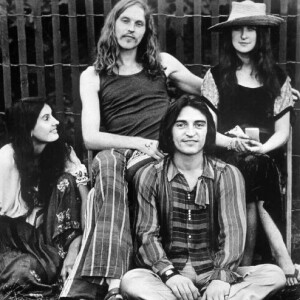
Monday Dec 25, 2023
The Incredible String Band - Part 1: Outside Looking In
Monday Dec 25, 2023
Monday Dec 25, 2023
They were artists, myth makers, story tellers, tribe leaders, psychedelic troubadours; they pioneered "world music” with albums like The Hangman’s Beautiful Daughter; they experimented with theater, drugs, film and lifestyle and inspired The Beatles, The Stones, Led Zeppelin, The Pet Shop's Neil Tennant, The Lilac Time and many, many others.
They lived the hippie dream of communes and free love, dressed like mediaeval princes and princesses, were the very essence of the Scottish counterculture, played Woodstock, became cult stars, were acid evengeleists; gathered a following, a tribe that stayed loyal to them long after they had gone..
In this, the first of a two parter, Adrian Whittaker who compiled the epic new book Be Glad for the Song Has No Ending and Peter Neal who made the film Be Glad for the Song has No Ending back in 1970, take us on a trip through the crazy countercultural life and times of The Incredible String Band.
Thanks to Peter for the audio clips from his film Be Glad for the Song has No Ending
#tripping #psychedelics #london #consciousness #scotland #scottishcounterculture #counterculture #drug #lsd #music #joeboyd #1960s #scientology #thelilactime #incrediblestringband #begladforthesonghasnoending #woodstock #stephenduffy #hippie
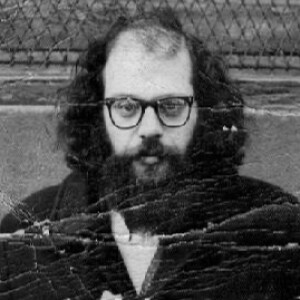
Monday Dec 11, 2023
In the ’60s: The Birth of the British Underground
Monday Dec 11, 2023
Monday Dec 11, 2023
He was friends with Burroughs and Ginsberg, wrote their biographies along with those of The Beatles, Paul McCartney, Frank Zappa, Charles Bukowski, Jack Kereouc and penned books on The Beat Hotel, Pink Floyd, The Stones - amongst about 70 others.
Barry Miles (known just as Miles) came back to the Bureau to tell us all about it.
We hear how he set up Indica Gallery where Lennon met Yoko, started International Times - the bible of the underground - was instrumental in the UFO club and the 14 Hour Technicolour Dream and jow his wife Sue gave Paul McCartney his first hash brownie - and that was just the sixties.
We will do the seventies next time..
#tripping #psychedelics #london #consciousness #beathotel #thebeats #counterculture #drug #lsd #memory #pinkfloyd #1960s #barrymiles #indica #lennon #mccartney #ginsberg #burroughs #betterbooks
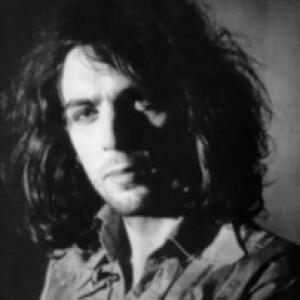
Saturday Nov 11, 2023
Remembering the Crazy Diamond
Saturday Nov 11, 2023
Saturday Nov 11, 2023
•Cult icon, enigma, recluse, crazy diamond, he was the founding member of one of the world’s most famous and succesful rock groups, but the life of Syd Barrett is full of unanswered questions.
•Was he a drug casualty of the sixties? Did he walk away from the pressures of the commercial music world? Did he suffer from an undiagnosed mental illness, did his muse abandon him? Was it a combination of these - or was it something more mysterious, something we can never really understand?
•'Have You Got It Yet?’, an extraordinary new film about Syd, pieces together his comet-like rise to pop stardom, his creative and destructive impulses, breakdown, his exit from Pink Floyd and his subsequent life alone, all set against the social context of the psychedelic swinging sixties. It is built around interviews with Syd’s friends, lovers, family and former band mates Roger Waters, David Gilmour, and Nick Mason. It is, as much as a tribute, a film about memory, friendship, lost youth, regret and the enduring power of music.
•Roddy Bogawa, the award winning co-director of the film and a crazy diamond in his own right, came to the Bureau to talk about 'Have You Got It Yet?’ - and to try to answer some of the questions about Syd.
•And along the way, we dig deep into London in the '60s, LA in the '70s, punk, underground films - and of course, counterculture.
•For more details on the film Have You Got It Yet
•For more about Roddy
*Join our cult
Thanks, as ever, to Jenny Spires for connecting us with Roddy.
#tripping #psychedelics #theunconscious #consciousness #truth #madness #counterculture #drug #lsd #memorey #pinkfloyd #sydbarrett #haveyougotityet? #crazydiamond #darksideofthemoon #wishyouwerehere #shineonyoucrazydiamond #ufoclub #madcap

Tuesday Oct 31, 2023
How To Expand Your Consciousness Part 2: Tripping
Tuesday Oct 31, 2023
Tuesday Oct 31, 2023
*Psychedelics have made a comeback but they remain deeply mysterious.
*They may be now seen as potential 'breakthrough therapy' for mental illness but we still have only a vague idea how they work, and there is a limit to what studies in labs can reveal. Any one who has used them knows that to really understand them, we must broaden our experience of what they actually are.
*Neuropsychologist ANDY MITCHELL decided to investigate for himself, taking ten different drugs in ten different settings - from a London neuroimaging lab to the Colombian Amazon via Silicon Valley and his friend's basement. Along the way, in a picaresque, deeply strange and often wild odyssy, he encountered scientists and gangsters, venture capitalists and con men, psychonauts and shamans.
*In this episode - Number 100 - we follow him and wonder if, whilst big pharma is closing in and whilst psychedelics are being hailed (and monetised), can they still be countercultural, transformatory, consciousness raising?
*Can in fact they still be just .. fun?
*Andy's book TEN TRIPS
*Join our cult
#tripping #psychedelics #theunconscious #consciousness #truth #madness #counterculture #drug #lsd #ayahuasca #neuroscience #consciousness
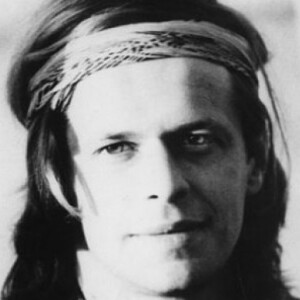
Monday Oct 16, 2023
Songs of War and Peace - with Boris Grebenshikov
Monday Oct 16, 2023
Monday Oct 16, 2023
*He is perhaps the biggest name in Russian rock music, famous as the leader of the band Aquarium throughout his homeland and 'Outer Russia’ (as the huge and growing number of Russian emigres are called), but he is now listed as a “foreign agent” - basically an anti-patriot, a traitor, for criticising Russia’s war
*Aquarium were pioneers of the clandestine homegrown rock scene that was born in early '70s USSR before emerging from the underground to become the pied pipers of perestroika, selling millions of albums (but usually getting paid nothing).*After a long and illustrous career, Boris Grebenshikov now lives in London and in response to the conflict has put together an extraordinary compilation aiming to help children in Ukraine - and for the friends and fans he has had to leave behind.
*The album features a star-studded ensemble including Dave Stewart of The Eurythmics, Jethro Tull, Marianne Faithful, Marc Almond, The Waterboys, Jackson Brown, Crowded House and many others. *We talk of the USSR in the 60s, cultural censorship,the power of music, the KGB arresting your friends, being back on the outside yet again - and we hear selections from the 'Heal the Sky’ album.
Thanks to Alex Kan for making this happen.
*For more details and to support the project: Heal The Sky
*Let us know where you are at (a few questions about you)
*Get Our Bulletin
#counterculture #music #ussr #soho #aquarium #ukraine #russia #war #borisgrebenshikov #perestroika #coldwar #russinemeigre #russianrock

Monday Oct 02, 2023
Riding The Oblivion Express - with Brian Auger
Monday Oct 02, 2023
Monday Oct 02, 2023
•He’s played with Jimi Hendrix, Sonny Boy Williamson, Paul McCartney, Rod Stewart, Jimmy Page, Billy Cobham, Spencer Davies, Long John Baldry, Rod Stewart, John McLaughlin, Tom Jones, Eric Burdon and many, many more.•With Julie Driscoll he had a huge hit with a masterful psychedelic rendition of Dylan's "This Wheel's on Fire”
•He's been hailed as the godfather of acid jazz, sampled by hip hop stars and nominated for a Grammy Award.
•At 82, BRIAN AUGER is still moving, grooving, sharp as a pin - and 'beginning again' as he says.
•We hear his extraordinary story and of the sign posts pointing the way on his musical journey - from the London Blitz - through the Soho jazz clubs of the 60s - to Venice Beach.
•Thanks to Greg Boroman and Karma Augur for making this happen.
*For More on Brian
* For more on the Auger Incorporated Archive release
*Let us know where you are at(a few questions about you)
*Get Our Bulletin
#counterculture #music #hammondorgan #soho #sohoclubs #soho #sohohistory #londonhistory #juliedriscoll #brianauger #hendrix #6oslondon #acidjazz
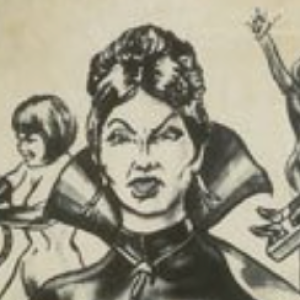
Monday Sep 18, 2023
The Soho Bibles: The Secret Porn of Post-War London
Monday Sep 18, 2023
Monday Sep 18, 2023
*Under the counter-culture..
*They were handmade illegal obscene books, a little like early punk zines, typewritten mimeographed manuscripts with two or three pornographic stories or a novella.
*Many contained drawings or photographs and were sold in post-war London and provincial second hand bookshops Thousands were produced, but only a small proportion survive today.
*Titles like Orgy Twins, Lust and Agony in Double Domination Nunnery Versus Fuckery or Discipline in the Home gave a sense of the contents to eager suburban punters wanting their share of the sexual revolution.
*Archaelogist and curator of forgotten, neglected, stigmatised or hidden phenomena, Dr. HELEN WICKSTEAD, who has written first major study of The Soho Typescripts (or The Soho Bibles as they have become known), takes us through the door and under the counter to take a peep through the curtain at a lost world of smut, desire and money.
*And we talk about Mickey Mouse having sex, the secret room of The British Museum, the private case of The British Library, a prehistoric phallus, erotic fish, police corruption, The Obscene Publications Act, Holywelll Street - and pornography as counterculture..
*For more of Helen*Let us know where you are at(short survey about You)
*Join Us
#counterculture #pornography #porn #sohobibles #sohotranscripts #soho #sohohistory #londonhistory #zines #sex
*Images courtesy of Helen Wickstead /Dave Notaro

Sunday Aug 06, 2023
Rock, Radicals and Racism
Sunday Aug 06, 2023
Sunday Aug 06, 2023
*Roger Huddle is a born and bred Londoner, a working class music-mad mod who grew up in the 50s, got radicalised in the 60s and became a co-founder of one the most successful activist groups of the 70s - Rock Against Racism (RAR).
*RAR was a political and cultural movement which emerged in 1976 in reaction to a rise in racist attacks on the streets of the United Kingdom and increasing support for the far-right National Front at the ballot box.
•Between 1976 and 1982 RAR activists organised national carnivals and tours, as well as local gigs and clubs throughout the country bringing together black and white fans in their common love of music.
*The musicians came from all pop music genres including some of the UK's biggest post-punk and Reggae artists including The Clash, Misty in Roots, Elvis Costello and X-Ray Spex.
*Roger came into the Bureau to tell us all about it and to school us in the London club scene of the 60s, radical socialism, agit prop, agit-pop, cultural revolution - and William Morris.
•For more on Roger:
•For more on RAR and Syd Shelton check out the film White Riot
•Image courtesy: John Sturrock
#counterculture #rockagainstracism #rogerhuddle #sydshelton #thenationalfront #racism #thebeats #london #walthamstow #williammorris #socialism #revolution #rockrevolution #theclash #agitprop #trotsky
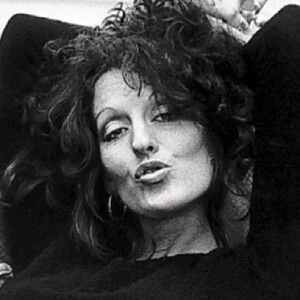
Sunday Jul 23, 2023
So You Say You Want a (Sexual) Revolution?
Sunday Jul 23, 2023
Sunday Jul 23, 2023
The pill, Profumo, pornography.
Love, liberation and libido.
Larkin, Lady Chatterley, Lolita, *No era in recent history has been both more celebrated and more vilified than the 1960s.
*For some it was a time when music, fashion and drugs enabled young people to express their individuality and freedom and their hopes and dreams of a better world. For others, it marked the advent of the permissive society, the undermining of authority, family values and common decency.
*And at the heart of this continuing controversy was ..sex. *PETER DOGGET, journalist, cultural critic and writer, whose book 'Growing Up: Sex in the 60s' takes an unflinching look at the dark underbelly of the sexual revolution, came into the Bureau to explain that while the orgiastic hedonism, ever-changing partners and polymorphous perversity of countercultural myth was enjoyed by a tiny minority, the vast majority of the British population could only gawp from the sidelines, still living in a world with a moral code that stretched back to the Victorian Age.
We talk about the battle between two opposing forces: the urge to free the body from guilt, and the desire to control, cannibalise and exploit that liberation for profit or pleasure - plus VD, groupies, The Beatles miniskirts, Germaine Greer and Jane Birkin (RIP).
*For more on Peter and his work
*Get our Counterculture newsletter
*The Bureau of Lost Culture Home
#sex #counterculture #sexualrevolution #sexualliberation #libido #permissivesociety #thepill #miniskirt #hippie #commune #blowup #janebirkin #sergegainsbourg #nabokov #freelove #sohoradio
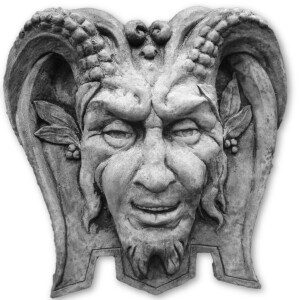
Sunday Jun 25, 2023
A Short History of The Pagan
Sunday Jun 25, 2023
Sunday Jun 25, 2023
*'This is the Dawning of the Age of Aquarius' claimed the first song in the hippie musical Hair in 1967.
And perhaps it was.
*As thousands gathered at Stonehenge to welcome the summer solstice sunrise and hundred of thousands gathered at the Glastonbury festival, Ethan Doyle White came to the Bureau of Lost Culture to talk about Paganism.
*Glastonbury itself is regarded by many as a ‘pagan place’ and many of those 8000 people who gathered at Stonehenge might describe themselves as 'pagans' - part of a counterculture that has roots going back to the pre-Christian era.
*But what does Pagan mean? Where did the word come? We take a trip through pagan history and ask what do modern pagans believe, think and do? We hear about Wicca, Heathens and Druids and delve into earth mysteries, magic, the New Age and psychogeography..
*Happy Solstice Brother and Sisters
For more on Ethan and his beautiful visual history of the Pagan
Get our Counterculture newsletter
The Bureau of Lost Culture Home
#pagan #counterculture #wicca #heathen #dionfortune #psychedelicsound #witch #esoteric #thegoldendawn #aleistercrowley #magic #pre-christian
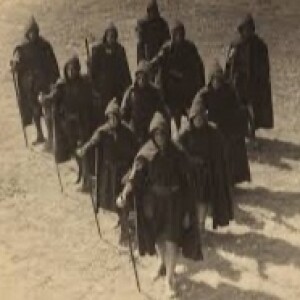
Sunday May 14, 2023
The Kindred of the Kibbo Kift
Sunday May 14, 2023
Sunday May 14, 2023
*If they were a cult, they were a very British cult.
*In the 1920s if you had seen strangely attired groups of people walking in formation along southern England's pagan pathways and round its prehistoric stone circles, you may have encountered The Kindred of the Kibbo Kift.
*They shared their initials - and a predeliction for arcane symbols, pointy hoods and cloaks - with the Ku Klux Klan but that's where the similarities end.
*They thought they were spiritual samurai, rebuilding Britain after the Great War with magical rituals, outdoor living and utopian vision. They were clean-living proto-new age weekend hippies directed by a messianic autocratic visionary and produced extraordinary art and craft of graphics, symbols, costumes.
*They remain one of our most fascinating and forgotten countercultural groups.
*They also inspired a '70s rock opera..
*Annebella Pollen, author of a wonderful book on the Kindred, came to the Bureau to tell us all about them and about some of the other strange esoteric groups that flourished in between the world wars.
The episode contains music from Chris Judge Smith and Maxwell Hutchinson's rock opera Kibbo Kift
*For Bella’s book: The Kindred of The Kibbo Kift
*Join us at the Bureau of Lost Culture
https://lp.constantcontactpages.com/su/N0ZYoFu/BOLC
*Listen to all our shows
www.bureauoflostculture.com
Photo: Angus Macbean
#london #counterculture #naturism #greenshirts #havelockellis #hgwells #aleistercrowley #occult #kibbokift #thekindredofthekibbokift #cults #cult #occult #esoteric #camping
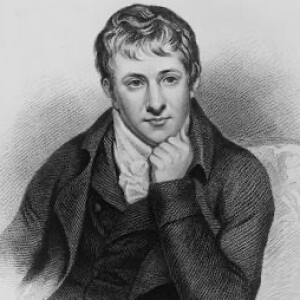
Sunday Apr 30, 2023
The Secret History of Psychonauts
Sunday Apr 30, 2023
Sunday Apr 30, 2023
"You do it to yourself" sang RadioheadWell that was certainly true of some of the subjects of this episode.
Historian of the mind MIKE JAY returns to the Bureau to tell of the intrepid scientists, artists, writers and thinkers who were experimenting with psychoactive substances and recording their experiences in the Victorian age and onwards.
But the notion that researchers might partake of drugs if they were going to have something valuable to say about them became unacceptable.
And we hear about the first British psychedelic experiences of Aleister Crowley, W B Yeats, Havelock Ellis and Maude Gone along with some of the lesser known London Psychonauts huffing ether, chloroform and nitrous oxide in the pursuit of knowledge during the 19th century counterculture.
For Mike's book: Psychonauts: drugs and the making of the modern mind
Join us at the Bureau of Lost Culture
https://lp.constantcontactpages.com/su/N0ZYoFu/BOLC
Listen to all our shows
www.bureauoflostculture.com
#london #drugs #psychoactive #psychedelic #humphreydavy #wbyeats #aleistercrowley #occult #jameslee #morphine #heroin #opium #hashish #nitrousoxide #science
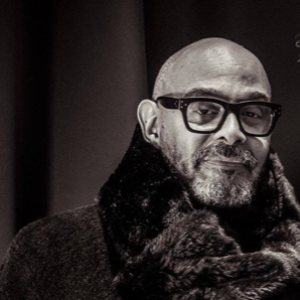
Saturday Apr 01, 2023
Moss Side Story - with Barry Adamson
Saturday Apr 01, 2023
Saturday Apr 01, 2023
He was a member of some of the most influential post punk bands: Magazine, The Birthday Party and The Bad Seeds. He's collaborated with a whole range of artists including Nick Cave, Iggy Pop, Diamanda Galas, David Lynch, Jarvis Cocker, Atticus Ross and Depeche Mode. He's written film scores, made films himself, made many solo records and recently published an extraordinary memoir of youth: 'Up Above the City and Down Beneath the Stars.’
The Jazz Devil Barry Adamson came to the Bureau to talk about his life and times - and about bones, about being an outsider, about Manchester in the 70s, about Punk, luck, trouble - and about heroin addiction.
And we discuss the alchemical process of turning darkness into artness and signposts and signal moments along the way.
For more on Barry
http://www.barryadamson.com
Join us at the Bureau of Lost Culture
https://lp.constantcontactpages.com/su/N0ZYoFu/BOLC
All shows
www.bureauoflostculture.com
#manchester #barryadamson #magazine #thebirthdayparty #thebadseeds #nickcave #howarddevoto #theclash #punk #postpunk #heroin #davidlynch #jazzdevil #nickcave #johnnymarr
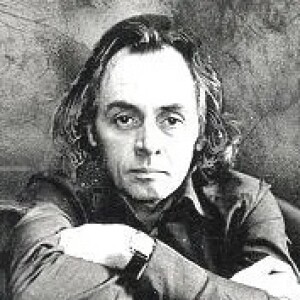
Saturday Feb 18, 2023
The Divided Self of R.D. Laing
Saturday Feb 18, 2023
Saturday Feb 18, 2023
*In 1965 the psychiatrist R.D.LAING formed a commune in an East London community centre called Kingsley Hall where the psychotic and the schizophrenic could live on equal terms with their carers. There were no locks and no anti-psychotic drugs but there were all-night therapy sessions, dinners with visiting mystics and high grade LSD available to any who chose to take it
*The Neuro-psychiatrist Anthony David came to the Bureau to talk about Laing and about how his groundbreaking book The Divided Self propelled him into the status of a countercultural guru. He grew his hair, he wore beads, he toured America speaking to large audiences and was asked to pronounce on all sorts of matters far beyond the subject of madness.
*We dig into Laing's life and work, successes and shadows, the subjects of mental health and psychedelics, talk about Van Gogh, David Bowie, Syd Barrett and the links between creativity and madness. And we hear about Tony's own work in London with those suffering from acute mental disorders.*For Tony's book 'Into the Abyss'https://oneworld-publications.com/work/into-the-abyss/*For the Bureau of Lost Culture http://www.bureauoflostculture.com
#rdlaing, #madness, #psychedelics, #mentalhealth, #london #schizophrenia, #psychosis, #thedividedself, #sydbarrett, #bowie, #psychiatry, #counterculture, #kingsleyhall, #anthonydavid, #vangogh
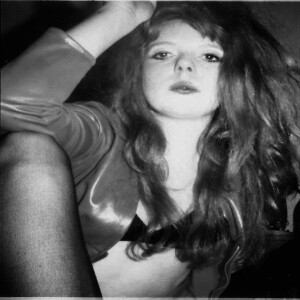
Sunday Nov 20, 2022
Punk, Porn and Performance
Sunday Nov 20, 2022
Sunday Nov 20, 2022
She worked as a go-go dancer, stripper and glamour model. She's been a performance artist of masochistic tangos and twisted mambos, a ballroom dance teacher, a street arts choreographer and a punk-rock drummer. She worked with Throbbing Gristle, Genesis P Orridge, Monte Cazzaza, and Derek Jarman.
*And she was there at the formation of Adam and the Ants and the Monochrome Set.
*Dorothy Max Prior joins us to talk about her wonderful book '69 Exhibition Road Twelve True-Life Tales from the Fag End of Punk, Porn & Performance’ published by Strange Attractor Press.*We hear about gay London in the 70s, the derelict city, bedsit land, fetish wear, rubber miniskirts, Westwood and Mclaren, The Sex Pistols, The Clash, The Roxy, The Monochrome Set, her own band Rema Rema and of course Stuart Leslie Goddard, better known as Adam Ant..
*For more on Max’s book: http://strangeattractor.co.uk/shoppe/69-exhibition-road/
The Bureau of Lost Culture: https://www.bureauoflostculture.com
#counterculture #punk #thesexpistols #theclash #remarema #theroxyclub #dorothymaxprior #adamant #adamandtheants #themonochromeset #london
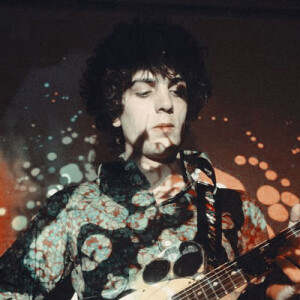
Sunday Nov 06, 2022
Tripping the Light Fantastic
Sunday Nov 06, 2022
Sunday Nov 06, 2022
*You couldn’t turn up at at any self respecting psychedelic hangout, countercultural club, happening, be-in or even disco in the late sixties and seventies without being immersed in the cosmic cloud of swirling dreamy liquid images, shapes and colours of the light shows illuminating and enhancing the music.
*Our counterculural companion in arms, Kevin Foakes, DJ Food, turntablist, graphic designer-par-excellence - and now author - returns to the Bureau to talk about his wonderful new book 'Wheels of Light’, published by Four Corners Books - a visual voyage through the history of British light show from 1970 to 1990, and a gorgeous multi-coloured sensory experience in itself, bursting with amazing images and art.
*If we took a trip in a time machine we might find them a little primitive given the multi media hi-tech laser extravaganzas we've got used to, but back in the days of love, the psychedelic light shows were genuinely revolutionary, mind bending, consciousness enhancing and state altering - particularly if augmented by a large dose of LSD.
*We hear about lighting up the UFO club, Pink Floyd and Soft Machine and we are joined by Neil Rice, co-founder of Optikinetics, one of the main suppliers of the projectors and gizmos that created the psychedelic light shows of the 60s and 70s - and by Jennie Caldwell, practicing light jockey for many bands in the subsequent summers of love of the 80s and 90s, including those cosmic warriors on the edge of time, Hawkwind.
*For More on Kev / DJ Food: https://www.djfood.org
*For Kev’s 'Wheels of Light’ book: https://www.fourcornersbooks.co.uk/books/wheels-of-light/
*The Bureau of Lost Culture: https://www.bureauoflostculture.com
#lightshow #hawkwind #pinkfloyd #sydbarret #UFOclub #softmachine #psychedelic #lsd #ravescene #summeroflove #tripping
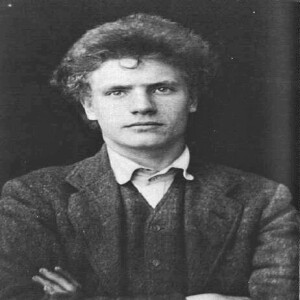
Monday Oct 10, 2022
The Lost Tarot Deck of Austin Osman Spare
Monday Oct 10, 2022
Monday Oct 10, 2022
It is a tale of lost treasure, it is a tale of a lost - or rather forgotten - artist, a mystic, a cockney visionary.
•Curator Jonathan Allen comes to the Bureau to tell of AUSTIN OSMAN SPARE and the strange and wonderful Tarot Deck that lay for decades in the archives of The Magic Circle, undisturbed and forgotten.
•Now a growing influence on artists, writer and chaos magick practitioners including Alan Moore and Jimmy Page, Spare became largely unnoticed in his lifetime.
•We hear of his curious, occult life in South London, his riches to rags story, cartomancy, divination and the discovery that may just change his future.
•And we hear of the efforts to bring that future into the present through a campaign by Strange Attractor Press that will make Spare's extraordinary visionary Tarot available for mystics, art lovers, collectors and the curious..
•For the Austin Spare Tarot Deck Kickstarter https://www.kickstarter.com/projects/strangeattractoruk/austin-osman-spare-occult-tarot-deck-and-book
•For the book Lost Envoy http://strangeattractor.co.uk/shoppe/lost-envoy/
•For The Bureau of Lost Culture https://www.bureauoflostculture.com
#bureauoflostculture #austinspare #austinosmanspare #tarot #lostenvoy #strangeattractor #strangeattractorpress #alanmoore #jimmypage #williamblake #pankhurst #mervynpeake #magiccircle #themagiccircle #tarotdeck #cartomancy #chaosmagick #magick #conjuring #southwark
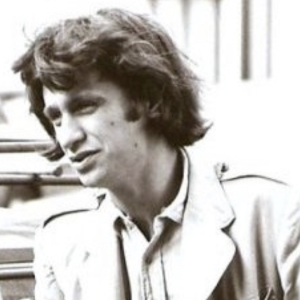
Monday Aug 15, 2022
Sowing the Seeds of Love
Monday Aug 15, 2022
Monday Aug 15, 2022
*Timothy Leary may have wanted to cause a revolution your head with LSD, The Beatles in your heart with Love, but countercultural activist and entrepreneur CRAIG SAMS went for the Gut.
*After bringing himself back from death’s door by curing the amoebic dysentery and hepatitis he contracted on the Central Asia hippie trail, he embarked on a mission to change the world and raise consciousness through food.
*We sit down with him for a feast of of fabulous food fables from feeding the freaks at The UFO club and the first Glastonbury festival, to co-founding Seed, London's first macrobiotic restaurant and the go-to healthy eatery for John and Yoko, The Stones and many other denizens of the London underground.
*Also on the menu: how he went on to co-found Whole Earth foods and then Green and Black's Chocolate, how macrobiotics will improve an LSD trip, how changing the way we eat can save us - and the planet - and how, at nearly eighty, he is still living the countercultural life.
For More on Craig: https://www.craigsams.com
Join us at The Bureau of Lost Culture https://linktr.ee/bureauoflostculture
#counterculture #macrobiotic #johnandyoko #thebeatles #greenandblacks #wholeearth #craigsams

Monday Aug 01, 2022
The Birth of the Asian Underground
Monday Aug 01, 2022
Monday Aug 01, 2022
*DJ and broadcaster BOBBY FRICTION drops by the Bureau to tell the tale of how, in the early 90s, a bunch of British kids from immigrant families ripped it up, mixing their traditional musical roots with drum and bass, electronic beats and urban sounds to form a new countercultural genre all their own - the Asian Underground.
*We hear how the scene was a kind of counterpart to the way Western counterculture adapted and was inspired by Eastern mysticism and culture.
*It's a rollicking personal tale by Bobby who was there at the beginning and who has been championing the scene ever since, soundtracked by some choice musical cuts.
We dig deep into all sorts of other stuff too: growing up in 70s London, racism on the city streets, Bhangra, 'ghazals', ABBA, Prince, daytime gigs, Sikh culture. radical politics, why 'Black' was cool but 'Asian' was apparently not in London club culture.
*And Bobby makes a plea for the British to realise the vision of becoming one people celebrating their diversity rather than splitting back into tribes.
*For more on Bobby: https://www.bbc.co.uk/programmes/b01rydpz
*For London Month of the Dead: https://www.londonmonthofthedead.com
*For Continental Drifts: https://www.continentalDrifts.co.uk
*The Bureau of Lost Culture: https://www.bureauoflostculture.com
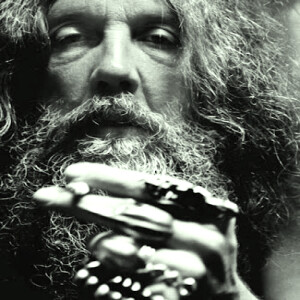
Monday Jul 18, 2022
Alan Moore on Counterculture
Monday Jul 18, 2022
Monday Jul 18, 2022
*He is widely recognised as one of the best comic book writers in the English language with works like From Hell, Watchmen, V for Vendetta, Killing Joke, The League of Extraordinary Gentlemen and Swamp Thing. He's the author of modern literary classics, including Jerusalem, a 1,266-page experimental epic novel, that have led to his legendary status and critical acclaim.*He is also an occultist, a ceremonial magician and an anarchist.
*ALAN MOORE beamed into the Bureau for a conversation about counterculture - in his own life and work, in the past, the present and in the future.
*We also dig deep into the 60s, the 70s, Thatcherism, Britpop, the power of The Arts Lab, why he doesn’t watch the adaptations of his work, the power of limitations to foster creativity and much more.
*Alan’s storytelling course on BBC Maestro:
LONDON MONTH OF THE DEAD
THE REAL TUESDAY WELD
Join us and support our wild endeavours
#alanmoore #michaelmoorcock #counterculture #artslab #london #malcolmmclaren
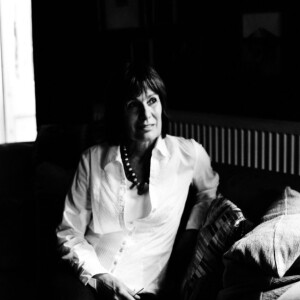
Monday Jul 04, 2022
Birth, Death - and Frestonia
Monday Jul 04, 2022
Monday Jul 04, 2022
The People's Republic of Frestonia, a countercultural micronation, was formed in three streets in North Kensington in the heady years of late seventies London.
*Long before the Occupy movement, a group of squatters, radicals, artists and activists decided to fight back against a local authority bent on evicting them from their homes and declared the area independent of the UK. Drawing huge media interest, some derision and lot of goodwill, they had their own passports, stamps and theatre and even applied to join the United Nations.
One of them, the psychotherapist Josefine Speyer, Frestonia's minister of Culture, comes to visit the Bureau for an hour or so to tell us what it was all about - and all about the countercultural journey she made to live there from her youth in Germany. We hear of communes in Berlin and Scotland, travelling in a gypsy caravan in Wales, home births and hash cookies in a cow shed and of some of the many alternative projects initiated by her radical activist husband Nicholas Albery.
*And we learn how they came to found the Natural Death Centre, blowing the lid on the secretive cabal that controlled the funeral industry and returning death and dying back to where it belongs - with the people..
For more about Frestonia: http://www.frestonia.org
A list of Micronations: https://en.wikipedia.org/wiki/List_of_micronations
For the Natural Death Centre: http://www.naturaldeath.org.uk
More on Josefine: https://deathcafe.com/profile/25/
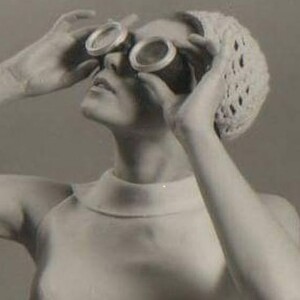
Monday Jun 20, 2022
Women, Sex, Counterculture
Monday Jun 20, 2022
Monday Jun 20, 2022
The Sexual Revolution? Yes. Liberation? Maybe. Penis Envy? NO!
*Youth culture in the sixties was progressive in so many ways but when it came to the relations between the sexes, it was perhaps much more traditional than it liked to admit.
*Sleeping around, Syd Barret, Pink Floyd, Groupies, Frigidity, the Pill, abortion, Oz magazine and of course The Female Eunuch make their appearance as we dig deep into what it was like growing up as a young woman in the underground scene of swinging sixties London.
*Author Jill Drower, once a member of The Exploding Galaxy experimental dance commune returns to the Bureau along with beat traveller, model and singer Jenny Spires as we ask if the story of counterculture has largely been one told by men about men.
*For Jill's book: The Exploding Galaxy: Performance Art, LSD and Bent Coppers in the Sixties Counterculture’
*Sign up for The Bureau Newsletter: https://lp.constantcontactpages.com/su/N0ZYoFu/BOLC
#SydBarrett #Pink Floyd #Groupies #Frigidity #abortion #Ozmagazine #TheFemaleEunuch #germainegreer #jennyspires #theexplodinggalaxy
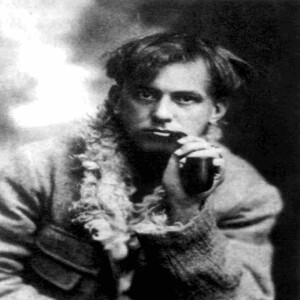
Sunday Jun 05, 2022
City of the Beast: Aleister Crowley’s London
Sunday Jun 05, 2022
Sunday Jun 05, 2022
*We take a creep through dimly lit London streets populated with prostitutes, bohemians, charlatans, junkies, spiritualists, drunkards and lost souls following magician, author, occultist and drug fiend ALEISTER CROWLEY,'The Great Beast’, as he prowls Piccadilly in pursuit of pleasure, power and yet more prostitutes.
*'Do What Though Wilt shall be the whole of the law’
*Our guide is Phil Baker, author of ‘City of The Beast’, part Crowley biography, part psychogeographic odyssey and part London gazetteer. We seek the man beneath the myth, the flaneur beneath the fiend and ask why do many still find the often deplorable Crowley so intriguing, even inspiring?
*Along the was we get fascinating glimpses into a lost era, a shadowy underworld of Victorian and Edwardian counterculture, Sex Magick, ether, drugs and .. snails..
*For The City of the Beast book : http://strangeattractor.co.uk/news/city-of-the-beast/
*For the O.T.O https://oto-usa.org/
*Sign up for The Bureau Newsletter: https://lp.constantcontactpages.com/su/N0ZYoFu/BOLC
* The Bureau Instagram https://www.instagram.com/bureauoflostculture/
#crowley #aleistercrowley #counterculture #magick #thegoldendawn #london #prostitution #occult #ether #666 #O.T.O.
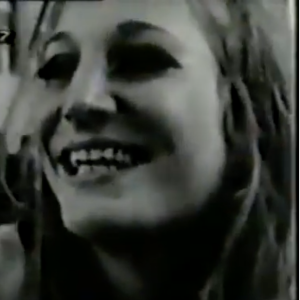
Monday May 09, 2022
Albion Dreaming - A Brief Trip Through the History of British LSD
Monday May 09, 2022
Monday May 09, 2022
*Experimental treatment of the insane, secret tests by MI5 with volunteers thinking they were helping find a cure for the common cold, Cold War weapon research by the Ministry of defence on unsuspecting troops - the early history of LSD in the UK was rather inauspicious.
*And then all hell - or heaven - broke loose..
*Britain's foremost psychedelic historian ANDY ROBERTS returns to the Bureau to take us on a trip through the revolutions in the head caused by Acid from the 1950s to now.
*Along the way we meet some of the characters who experimented, manufactured, dealt, swallowed and were transformed by it - as well as those who tried to stop them - including an unlikely Breaking Bad style pharmacist in Islington, The Microdot Gang and even the Kray Twins..
*So sit back, relax, blow out the candles and kick off your sandals … (thanks The Lilac Time), tune in, turn and ...
*Andy and Albion Dreaming: https://www.amazon.co.uk/Albion-Dreaming-popular-history-Britain/dp/1905736274
* Sign up for The Bureau Newsletter to get countercultural treats https://lp.constantcontactpages.com/su/N0ZYoFu/BOLC
* The Bureau Instagram https://www.instagram.com/bureauoflostculture/
*The Real Tuesday Weld https://www.tuesdayweld.com
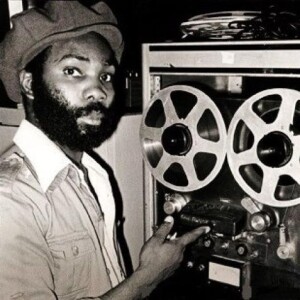
Monday Apr 11, 2022
The Life and Times of Dubmeister Dennis Bovell
Monday Apr 11, 2022
Monday Apr 11, 2022
* He stepped off a plane from Barbados onto a wet and windy runway at Heathrow airport in 1965 aged 12.
* Now he’s a DJ, multi-instrumentalist and producer of hundreds of records spanning reggae, lovers rock, soul, dub, punk and pop.
* Dennis Bovell's life in music is populated by a countercultural cornucopia of artists as wide ranging as Linton Kwesi Johnson, The Slits, Madness, Bananarama, the Pop Group, Fela Kuti, Orange Juice, Marvin Gaye, Ryuichi Sakamoto, Dexy’s Midnight Runners and most recently, Radiohead, The Animal Collective and Spoon.* He's even got an MBE.* We dig into all that - or as much as we can - plus Hendrix, sound systems, cutting dub plates, sound clashes with Lee Scratch Perry, police harrasment, wrongful imprisonment and the youthful joys of eating breadfruit on the beach.
* For More on Dennis https://en.wikipedia.org/wiki/Dennis_Bovell
* The Bureau Home https://www.bureauoflostculture.com
* The Bureau Instagram https://www.instagram.com/bureauoflostculture/
* The Bureau Newsletter https://lp.constantcontactpages.com/su/N0ZYoFu/BOLC
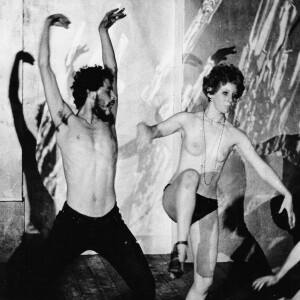
Monday Mar 28, 2022
The Exploding Galaxy
Monday Mar 28, 2022
Monday Mar 28, 2022
* In 1967 and and 1968, an ordinary north London house contained an Exploding Galaxy - a psychedelic commune and carnival of theatrical performers, artists and performance poets bent on transforming the city through spontaneous happenings, countercultural interventions and street activism..
* One of them was only 15 years old. Now all grown up, JILL DROWER comes to the Bureau to talk about her time at 99 Balls Pond Road as a Galaxy member - how the whole crazy endeavour came about - and how it exploded into and out of existence
Alson the way we visit The UFO club, The 14 Hour Technicolour Dream, hear about ‘scrudging’ , bent coppers intent on busting hippies for being hippies and the lost dream of peace, love and understanding that once might have changed everything.
* For More on The Exploding Galaxy http://www.djfood.org/category/bureau-of-lost-culture/
* For Kev's amazing psychedelic DJ FOOD archive https://djfood/org
* The Bureau Home https://www.bureauoflostculture.com
* The Bureau Instagram https://www.instagram.com/bureauoflostculture/
* The Bureau Newsletter https://lp.constantcontactpages.com/su/N0ZYoFu/BOLC
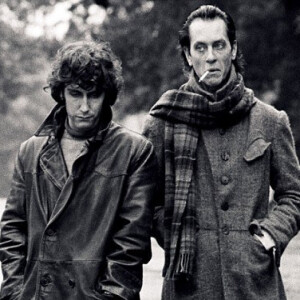
Sunday Mar 13, 2022
A Countercultural History of Camden Town
Sunday Mar 13, 2022
Sunday Mar 13, 2022
* Withnail and I, Poets, Spiritualists, Irish, Spanish and Hugenot immigrants, Serial Killers, Artists, Railway workers, William Blake, Rimbaud and Verlaine, Walter Sickert, Sex, Drugs, Rock’n’Roll, Music Hall, Folk, Britpop, Levitation, The Roundhouse, Cecil Sharp House, The New Jerusalem, Markets, Markets, Markets..
* Writer, researcher and walker of Lost Rivers Tom Bolton leads us up and out of The Bureau to wander through the streets and stories of the London Borough of Camden - for decades, the down and dirty end of the countercultural city - in search of the strange spirits that still pervade its highways and byways.
* For more on Tom and his work https://tombolton.co.uk
* Bureau Home www.bureauoflostculture.com
* Bureau Instagram https://www.instagram.com/bureauoflostculture/
* The Bureau Newsletter https://lp.constantcontactpages.com/su/N0ZYoFu/BOLC
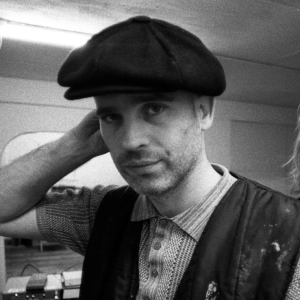
Sunday Feb 27, 2022
Countercultural Broadcasting: Urban Pirate Radio
Sunday Feb 27, 2022
Sunday Feb 27, 2022
* Ninja Tune head honcho and Coldcut co-pirate Jonathan More returns to the Bureau to talk about his adventures hi-jinxing and hi-jacking the airwaves in the Wild West of South London.
* For the second in our trilogy on illicit broadcasting, we hear tales of DJ derring-do during the birth Of Kiss Fm, once one of the coolest of the urban pirate radio stations and its transition to the commercial mainstream.
* And in the mix, we debate how the mainstream is dependent on the underground, the culture feeds on the counterculture, and along the way go crate-digging into how Jon caught the disease of collecting vinyl, putting on warehouse parties, life-changing meetings in London taxis, pirate TV, Coldcut's Solid Steel show - and nuclear power station ephemera..
* For Jon and Coldcut http://coldcut.net
* Jon’s Soho Radio show Out to Lunch https://sohoradiolondon.com/profile/jon-more/
Thanks for audio samples and info:
* DJ Food https://www.djfood.org/
* The Pirate Radio Archive https://www.thepiratearchive.net/
* AMFM.0rg https://www.amfm.org.uk/
* Death is Not the End https://deathisnot.bandcamp.com/album/london-pirate-radio-adverts-1984-1993-vol-1
Follow Us:
* Bureau Home www.bureauoflostculture.com
* Instagram https://www.instagram.com/bureauoflostculture/
* Get the Bureau Newsletter https://lp.constantcontactpages.com/su/N0ZYoFu/BOLC
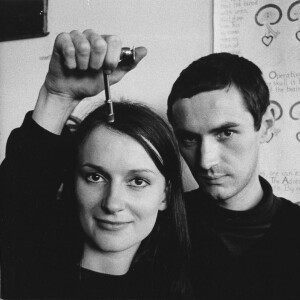
Sunday Feb 13, 2022
The Man Who Drilled a Hole in his Head
Sunday Feb 13, 2022
Sunday Feb 13, 2022
Cannabis, psilocybin, mescaline and LSD were not enough to fulfil Joey Mellen’s quest to expand his consciousness to the furthest limits 'in search of the miraculous'. So in 1968 he used an electric drill to self-trepan himself by boring a hole into his skull.
Now a delightful and very lively 82, Joey visits the Bureau to tell how an upper middle class English public schoolboy tuned in, turned on and dropped out, became a psychonautic beatnik and carried out the act of self surgery that made him infamous in countercultural London. Along the way we dig deep into acid evangelism, how to avoid bad trips, the blood chemistry of the ego and the strange life of Bart Hughes, the dutchman whose theories inspired Joey, Amanda Fielding and various others to seek enlightenment through trepanation.
And we ask Joey if he acheived his goal of getting high and never coming down.
This episode was sponsored by the artist known as The Real Tuesday Weld
Joey’s book Bore Hole
Get the Bureau's Newsletter
Support our wild endeavours
The Bureau of Lost Culture Home
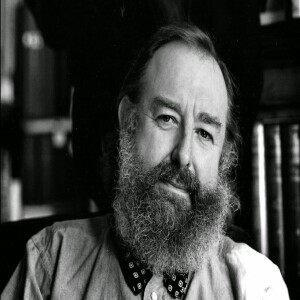
Tuesday Jan 18, 2022
The Lives and Times of Michael Moorcock - Part 1
Tuesday Jan 18, 2022
Tuesday Jan 18, 2022
Multi-award winning writer, musician, editor, essayist and inventor of the multiverse, Michael Moorcock, beams into the Bureau for the first episode exploring his deeply countercultural life in literature and London
It’s an action-packed hour involving The Beats, William Burroughs, Soho, J G Ballard, Tarzan, Conan the Barbarian, anarchists, a Rolls Royce, myth, skiffle, fanzines, comics and books, books books.
We hear how a precocious teenage Michael sets out on a career that led to the writing of over a hundred books and the creation of the well-loved characters including Elric and Jerry Cornelius who inhabit them, and we hear a revelation that will surprise even die-hard Moorcock afficionados..
For more on Michael
http://www.multiverse.org
----------
Get the Bureau's Newsletter
Support our wild endeavours
The Bureau of Lost Culture Home
Go on - follow, rate and review us - or be in touch directlybureauoflostculture@gmail.com
We'd love to hear from you.-------------
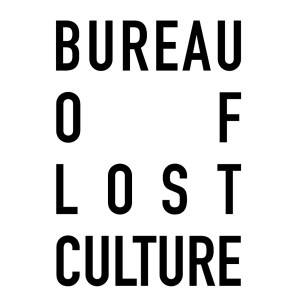
Sunday Jan 02, 2022
The Lost World of The Self-Made Record
Sunday Jan 02, 2022
Sunday Jan 02, 2022
We revisit the wonderfully odd, lost culture of the coin-operated machines that allowed ordinary people to make a record of their voice long before the advent of tape or digital recording.(Jack White has been using one, The Voice O Graph, more recently to produce terrific lo- fi caught-in-the-moment records, including an album with Neil Young).
We are joined by oral historian and broadcaster Alan Dein to hear a selection of recordings of strange, moving ghostly voices from his collection and learn how the records were used to send messages home from the war, record visits to tourist destinations or to capture the sounds of loved ones in a way that had never been possible before.
For more on Alan’s award winning work
https://www.facebook.com/alan.dein
----------
Get the Bureau's Newsletter
Support our wild endeavours
The Bureau of Lost Culture Home
Go on - follow, rate and review us - or be in touch directlybureauoflostculture@gmail.com
We'd love to hear from you.-------------
Image courtesy Museum of London

Sunday Dec 05, 2021
The Countercultural World of Iain Sinclair
Sunday Dec 05, 2021
Sunday Dec 05, 2021
Writer, film maker, poet, flaneur, metropolitan shaman, curator of lost cultures, beat aficionado, and underground poet Iain Sinclair takes us on a walk through his life in the counterculture.
We have brief encounters with Kerouac, Allen Ginsberg, Alan Moore, Michael Moorcock, Peter Ackroyd, J.G.Ballard and Nicholas Hawksmoor as we hear tales of the poetry underground, life working as a Hackney council gardener, blacklegging in the London docks, cigars in Clerkenwell, an epic ancestral journey from Leadenhall Market to Peru, DIY-publishing, writing, writing, writing, and of course The City, as we circle towards hearing Iain reading selections from Lud Heat, the epic 1975 piece that was destined to become the root text of London psychogeography.
For more on on Iain and his work:
www.iainsinclair.org.uk
----------
Get the Bureau's Newsletter
Support our wild endeavours
The Bureau of Lost Culture Home
Go on - follow, rate and review us - or be in touch directlybureauoflostculture@gmail.com
We'd love to hear from you.-------------
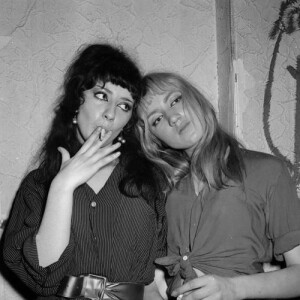
Monday Nov 08, 2021
Raving Upon Thames
Monday Nov 08, 2021
Monday Nov 08, 2021
Soho and Chelsea have always been hailed as the epicentres of swinging London.
But there was a third, and now rather forgotten place which gave birth to The Cool - a place that was the home to one of the most influential jazz clubs of the 50s before providing a launchpad for The Rolling Stones and the bourgeoning British R+B and psychedelic scenes of the 60s. It was a place that went onto to host an extraordinary roster of artists including Cream, The Yardbirds, pre-Bowie David Jones, Pink Floyd, Black Sabbath, Jimmy Page, Genesis, Yes and many, many others before morphing into a hippy commune in the 70s.
Author Andrew Humphreys comes to the Bureau to tell the strange story of Eel Pie Island - a bucolic bit of London in the middle of the river Thames - an island which for 15 years played an essential role in the history of British counterculture.
For more on Andrew and his book Raving Upon Thames
http://www.paradiseroad.co.uk
----------
Get the Bureau's Newsletter
Support our wild endeavours
The Bureau of Lost Culture Home
Go on - follow, rate and review us - or be in touch directlybureauoflostculture@gmail.com
We'd love to hear from you.-------------
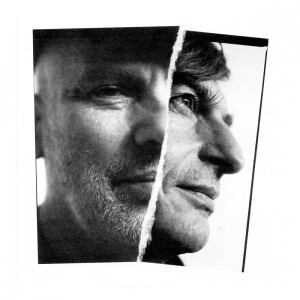
Monday Oct 25, 2021
The Art and Craftiness of Sampling
Monday Oct 25, 2021
Monday Oct 25, 2021
Jon More, one half of cut-and-paste collage kings Coldcut and co-founder with Matt Black of Ninja Tune record label, joins turntablist, crate digger Strictly Kev of DJ Food as we dig deep into the wild and wonky world of sampling - the borrowing, plundering, adapting and re-imagining of existing audio, songs and sounds to create new audio, songs and sounds.
Sampling might have started off as a countercultural underground cut-and-paste technique used by experimental artists but it ended up powering a huge amount of hip-hop tunes and some very big hit records.
We hear some of Jon and Kev's favourite sampling selections, learn about the creative use of the tape recorder pause button, and delve into sound art, musique concrète and pop cultural pick-pocketing down the ages.
For more on Jon and Coldcut
http://coldcut.net
For more on DJ Food / Strictly Kev
https://www.djfood.org
----------
Get the Bureau's Newsletter
Support our wild endeavours
The Bureau of Lost Culture Home
Go on - follow, rate and review us - or be in touch directlybureauoflostculture@gmail.com
We'd love to hear from you.-------------
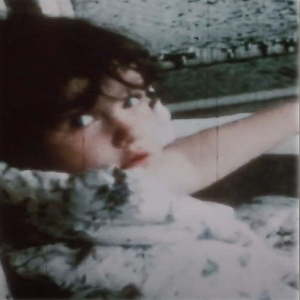
Monday Sep 13, 2021
Child of the Counterculture
Monday Sep 13, 2021
Monday Sep 13, 2021
A Zelig, a holy fool, a trickster, a black magician, a sociopath, a charlatan, a genius, a fabulist, a junkie, an alcoholic, a secret agent, a police informer, a disruptor, an often loveable preacher of Love who didn't actually seem to know what it meant?LSD evangelist Michael Hollingshead might or might not have been all of these, but he was certainly a father. What is it like to be the child of such a person?Comedian Vanessa Hollingshead and writer Jeannie Hilton tell the dark and intense story of Vanessa’s tumultuous life with Michael, the working class Englishman who, according to his own claim, 'turned on the world' - or at least, many of those who did - including Timothy Leary and The Beatles - and who, like many who have advocated universal love and cosmic enlightenment, led a tragic and toxic personal life.
It's a wild and crazy trip, at times funny, at times disturbing. Be warned!
To find out more about The Divine Rascal film projectwww.thedivinerascal.com
----------
Get the Bureau's Newsletter
Support our wild endeavours
The Bureau of Lost Culture Home
Go on - follow, rate and review us - or be in touch directlybureauoflostculture@gmail.com
We'd love to hear from you.-------------
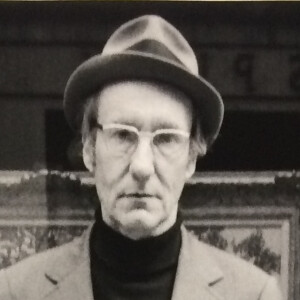
Sunday Aug 29, 2021
William Burroughs and Friends
Sunday Aug 29, 2021
Sunday Aug 29, 2021
The ghosts of William Burroughs, Jack Kerouac, Alan Ginsberg, John Giorno and Bob Cobbing make an appearance at the Bureau - as curator Steve Cleary plays us a selection of super rare recordings from the British Library Sound Archive.
The Archive is one of the biggest curated resources of audio in the world and includes over 1 million discs, 185,000 tapes, and many other sound and video recordings from around the globe Steve takes us on a wander through its unparalleled counterculture collection.
We also hear from the capital's foremost chronicler of the counterculture, Barry Miles, on Burroughs' life in London - along with a live recording of the beat writer at Manchester's Hacienda, a sampling of his cutups, some deeply strange sound poems and a wonderful recording of Kerouac jazz scatting at Neal Cassidy’s house.
For more on the British Library Sound Archive
https://sounds.bl.uk
----------
Get the Bureau's Newsletter
Support our wild endeavours
The Bureau of Lost Culture Home
Go on - follow, rate and review us - or be in touch directlybureauoflostculture@gmail.com
We'd love to hear from you.-------------
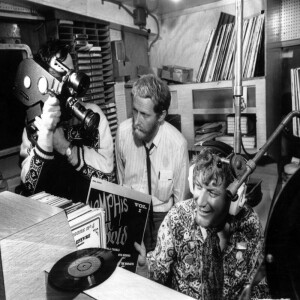
Monday Aug 02, 2021
The Lost World of Pirate Radio - Part One
Monday Aug 02, 2021
Monday Aug 02, 2021
PIRATE RADIO first erupted in the UK in the early 1960s when stations such as Radio Caroline and Radio London started to broadcast from ships moored offshore or disused WW2 forts in the north sea. They were set up by wildcat entrepreneurs and music enthusiasts to meet the growing demand for the pop, rock and underground music not catered for by the BBC who had a monopoly on the airwaves.Music writer ROB CHAPMAN returns to the Bureau to tell the story of this first golden age of illicit broadcasting. We hear of the extraordinary life of pirate-in-chief Ronan O’Rahilly anarchist founder of Radio Caroline, of legendary broadcaster John Peel and his ground breaking show ‘The Perfumed Garden’, and of the oddities of life aboard the radio ships precariously sailing the airwaves.Initially, the stations got round the law because they were broadcasting from international waters to delighted young people across the country before they ran foul of the authorities and were shut down in 1967. But their impact lived on: the government caved into youth demand for pop music with the creation of Radio 1 and many of the pirate radio DJs including Tony Blackburn, Kenny Everett, Johnnie Walker, Emperor Rosko went on to mainstream success with the BBC and commercial stations of the seventies and beyond.For more on Robhttp://www.rob-chapman.com
----------
Get the Bureau's Newsletter
Support our wild endeavours
The Bureau of Lost Culture Home
Go on - follow, rate and review us - or be in touch directlybureauoflostculture@gmail.com
We'd love to hear from you.-------------

Monday Jun 07, 2021
London’s Lost World of Yiddisher Jazz
Monday Jun 07, 2021
Monday Jun 07, 2021
London’s East End and Soho were the centres of a unique musical culture in the years between the 20s and the 50s.
Award wining oral historian and radio producer ALAN DEIN returns to the Bureau to tell stories of songs that soundtracked that world and feature on ‘Music is the Most Beautiful Language in the World', the album of super rare tunes by London jewish jazz artists he has unearthed.
We hear tales of poverty and glamour, Soho gangsters, ghettos, vaudeville swing, comedy, cuisine and cabaret - and of some of the musicians who escaped the squalid streets of Whitechapel to become international stars. And we discuss what it means to be an oral historian, the power of story and how much radio still matters.For more on Alan’s work
https://www.facebook.com/alan.deinFor Don't Log off
https://www.bbc.co.uk/programmes/b01jxzy9
For the ‘Music is the Most Beautiful Language in the World’ album
https://jwmrecords.bandcamp.com/releases
----------
Get the Bureau's Newsletter
Support our wild endeavours
The Bureau of Lost Culture Home
Go on - follow, rate and review us - or be in touch directlybureauoflostculture@gmail.com
We'd love to hear from you.-------------

Thursday May 27, 2021
The English Underground with Nick Laird Clowes - Part 2
Thursday May 27, 2021
Thursday May 27, 2021
We return for Part 2 of a trip through the English Underground scene of the 1960s and 1970s led by musician and pied piper Nick Laird Clowes of The Dream Academy.
Nick tells of his extraordinary youth deeply immersed in the political, musical and alternative scenes of West London. We hear about meeting Iggy Pop in a toilet, Nick Drake's guitar, the demise of Syd Barrett and dinner with Andy Warhol amongst many other terrific tales of living the countercultural life.
For more on the Bureau of Lost Culturewww.bureauoflostculture.com
For more on Nickwww.nicklairdclowes.com

Thursday May 27, 2021
The English Underground with Nick Laird Clowes - Part 1
Thursday May 27, 2021
Thursday May 27, 2021
We take a romp through the underground alternative and music scene of the 1960s in the first half of a two part episode. Our guide is musician and Nick Laird Clowes who regales us with stories of running away to the Isle of Wight festival, dj-ing at The Roundhouse, meeting John Lennon amongst many countercultural characters of the day and much, much more.
All this before an age when most of us had even smoked a cigarette - and all before his days of pop stardom with The Dream Academy.
For more on the Bureau of Lost Culturewww.bureauoflostculture.com
For more on Nickhttps://www.nicklairdclowes.com

Thursday May 27, 2021
Tales from The Flamingo Club
Thursday May 27, 2021
Thursday May 27, 2021
Ella Fitzgerald, Sarah Vaughan, Billie Holiday Dizzy Gillespie, Rod Stewart, Otis Redding, Wilson Pickett, Eric Clapton, the Moody Blues, Mick Fleetwood, Pink Floyd, Georgie Fame, Ginger Baker, Long John Baldry, the Small Faces … the roll call of those who played in the Soho basement called The Flamingo is a who's who of 50s and 60s cool.
Journalist and author Pete Watts takes us on a trip through time and down the stairs of 33 Wardour Street to hear stories of one of London's most important lost and legendary venues.
We hear how the Flamingo was hugely influential on up and coming musical stars of the 60s like Pete Townsend and The Rolling Stones, how it played an influential roll in the history of black music in the city and how you can perhaps still catch its spirit in the gents’ loos of the Irish theme pub that now occupies the site..
For more on Pete Watts:
the great wen
For more on the Bureau of Lost Culture
www.bureauoflostculture.com

Tuesday Feb 02, 2021
The Lost History of Skiffle - with Billy Bragg
Tuesday Feb 02, 2021
Tuesday Feb 02, 2021
BILLY BRAGG pays a visit to the Bureau to lead us on an extraordinary whirlwind tour through the music that the counterculture forgot.
Along the way we hear about the emergence of The Teenager in post-war Britain, the massive impact of Rock Around the Clock, the Soho espresso bar culture of the 50s and the birth of British youth culture.
We explore why Skiffle, which soundtracked that youth culture for a few intense years and was the inspiration for musicians in The Beatles, Led Zeppelin, The Who and The Rolling Stones, has been oddly forgotten. And Billy explains why, as the first British DIY musical revolution, Skiffle provided the template for the Punk movement of the 70s that was to inspire him.
Along the way, we get educated about the post war 'trad jazz' movement, the cultural stranglehold of the BBC - and the terrific transformatory power of a guy - or a girl - with a guitar.
For more on Billy and his book Roots, Radicals and Rockers:
https://www.billybragg.co.uk/product/roots-radicals-and-rockers-how-skiffle-changed-the-world-hardback-signed-by-billy/
Billy's Top Five Skiffle Tunes
https://youtube.com/playlist?list=PLZtMpev7GhPIi-e2ajPxUd_FVyUQxMBbB
For more on the Bureau of Lost Culture
www.bureauoflostculture.com

Sunday Jan 03, 2021
Days of the Underground: The Life and Times of Hawkwind
Sunday Jan 03, 2021
Sunday Jan 03, 2021
Hawkwind: Never in fashion but never out of it, piratical pagan proto-punks, avatars of the underground, figureheads of the free festival scene, innovative heralds of the rave generation, cosmic space rockers with street fighter spirit - there is no one like them.
We meet with Joe Banks author of “Hawkwind: Days Of The Underground – Radical Escapism In The Age Of Paranoia” (Strange Attractor Press) to explore the story of a much loved band that have gradually come to win the respect of many of the most cynical of critics - perhaps partly just by virtue of still being around, but mainly by sticking to their fiercely independent, idiosyncratc, anti-corporate, psychedelic ethos.
And we return to the West London musical, social melting pot we have previously explored with Nick Laird Clowes to uncover the fertile countercultural ground that gave birth to Hawkwind and in which they played such an important role.
For more on Joe Banks
https://www.daysoftheunderground.com
For more on the Bureau of Lost Culture
www.bureauoflostculture.com
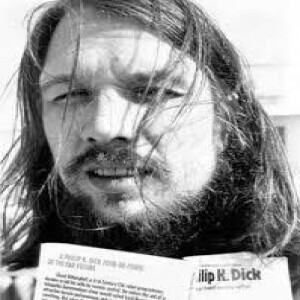
Tuesday Dec 01, 2020
Which One’s Pink? Managing the Counterculture
Tuesday Dec 01, 2020
Tuesday Dec 01, 2020
One afternoon in the mid 1960s, Pete Jenner left off marking exam papers at the London School of Economics and popped into the Marquee club. There was a band playing, They changed his life - and he changed theirs.
Pete enters the Bureau of Lost Culture to tell us about discovering The Pink Floyd, the band he and Andrew King guided from darlings of the underground to early commercial success.
But that was just the beginning. We hear about Pete' early life as the son of a radical vicar and how politics and music blended in his involvement in the early days of the West London Underground scene: The London Free School, The Tabernacle, The UFO club and the start of the Hyde Park festivals.
We learn about the tragic disintegration of Syd Barrett who Pete and Andrew King chose to back whilst Pink Floyd went onto to global stardom, and we learn something about the ins and outs of a life spent in music, fostering the careers of Marc Bolan, Roy Harper, Ian Drury, The Clash and Billy Bragg amongst many others..
For more on the Bureau of Lost Culture
www.bureauoflostculture.com

Tuesday Nov 17, 2020
Rebel Threads: Dressing the Counterculture
Tuesday Nov 17, 2020
Tuesday Nov 17, 2020
ROGER BURTON started out working on a farm and ended up running a Horse Hospital. No, he’s not a vet but has spent most of his life clothing, collecting and curating the counterculture. Along the way, he has designed shops for Vivienne Westwood and Malcolm McLaren, provided the clothes for Quadrophenia, and Absolute Beginners, dressed the New Romantics, styled 100s of pop videos and given a leg up to many fringe artists (inc. me).
We dig deep into Rebel Threads, his amazing book and collection of youth culture clothing from the 1920s - 1980s, hear about the birth of Mod, selling gear to the Kings Road boutiques of the 60s and 70s and how the actual 18th century Horse Hospital he runs has provided a venue for 27 years worth of unparalleled radical, fringe gigs, film, exhibitions and happenings in central London. And how, despite wide support across both the mainstream culture and the counterculture, it is facing closure due to the usual sad London story of property developer greed.)
For more on Roger, Rebel Threads and The Horse Hospital
http://thehosrsehospital.com
For more on the Bureau of Lost Culture
www.bureauoflostculture.com

Sunday Nov 01, 2020
Days in the Life: The Language of Counterculture
Sunday Nov 01, 2020
Sunday Nov 01, 2020
Chick.Trip.Dope, Pad. Heavy. Cool. Scene. Man. Beat. Freak. Weed. Bang. Square. Blast. Cat. Gas!
In an action packed episode, we spend a Soho afternoon with 'Mr Slang’ Jonathon Green discussing his amazing life in the counterculture, writing for Rolling Stone and the underground magazines including IT, OZ and Friends.
Then we dig deep into his ground breaking catalogue of the counterculture: ‘Days in the Life: Voices from the English Underground' with its interviews of over a hundred figures involved in the counterculture including Paul McCartney, Barry Miles and Jenny Fabian.
And, as Jonathon is our foremost lexicographer of slang, he takes us on wander into the weird and wonderful world of countercultural language, exploring where all those hippie and beatnik words came from and discovering why ‘Fuck' is not in fact a swear word.
For more on Jonathon’s books
http://jonathongreen.co.uk
For more on Jonathon’s Slang Dictionaries
https://greensdictofslang.com
For more on the Bureau of Lost Culture
www.bureauoflostculture.com

Monday Oct 19, 2020
Tonite Let's All Make Love in London: The Films of Peter Whitehead
Monday Oct 19, 2020
Monday Oct 19, 2020
Peter Whitehead was an innovative English writer and filmmaker who documented the counterculture in London and New York in the late 1960s.
His film Wholly Communion captured The International Poetry Incarnation, a groundbreaking event at The Royal Albert Hall in 1965 that was to prove pivotal in the evolution of the underground scene. The film featured poetry readings by Beat poets including Allen Ginsberg, Michael Horovitz, Adrian Mitchell and Lawrence Ferlinghetti and established Whitehead as the London counterculture’s 'Man With a Movie Camera’.
Film event producer Marek Pytel walks us through Whtehead's life and work including the iconic 'Tonite Let's All Make Love in London’ documentary that helped define the "swinging London" scene of the sixties with psychedelic performances and interviewees including Pink Floyd, John Lennon, Yoko Ono, Mick Jagger, Vanessa Redgrave, Lee Marvin, Julie Christie, Allen Ginsberg, Eric Burdon, Michael Caine and many others.
We hear how Whitehead went onto film with The Rolling Stones and Jimi Hendrix and to make provocative work about the countercultural protest movement in late 60s New York before making an extraordinary career swerve.
For More on Marek Pytel's work see www.realityfilm.co.uk
For more on the Bureau of Lost Culture
www.bureauoflostculture.com

Wednesday Sep 16, 2020
The Man Who Turned On the World - Hollingshead Pt.1
Wednesday Sep 16, 2020
Wednesday Sep 16, 2020
In the first of an occasional series of broadcasts around the subject of LSD, psychedelic historian Andy Roberts takes us on the first part of a trip through the extraordinary life and times of Michael Hollingshead.
Hollingshead's assertion that he ‘turned on the world’ may be wildly immodest, but he did introduce Timothy Leary (and many others) to acid and thus played an essential role in the evolution of the counterculture in the USA and the UK.
He remains relatively forgotten - and his home town of Darlington does not figure in the topography of Acid culture - despite his tremendous consciousness changing exploits.
But he was no saint. Andy, whose book Divine Rascal is the first biography of Hollingshead, charts the idiosyncracies and rise and fall of a man variously described as a Zelig, holy fool, trickster, black magician, sociopath, charlatan, genius, fabulist, junkie, alcoholic, secret agent, police informer, disruptor and sex mad preacher of Love who didn't actually understand love.
To be continued.
For more on Andy and ‘Divine Rascal'
http://strangeattractor.co.uk/shoppe/divine-rascal/
For more on the Bureau of Lost Culture
www.bureauoflostculture.com

Wednesday Sep 16, 2020
Barney Bubbles: Designing the Counterculture
Wednesday Sep 16, 2020
Wednesday Sep 16, 2020
Writer and cultural commentator Paul Gorman takes us on an exploration of the countercultural designer Barney Bubbles. It is an extraordinary story, magic and tragic by turn.
Bubbles, who, despite his effervescent alias, was so modest that he declined to have his name included on the many extraordinary album covers he designed, has rather faded from public awareness since his untimely suicide. But he remains much admired by lovers of album cover art and has influenced a growing coterie of graphic designers.
Paul, who has championed him with a biography and three exhibitions, traces his life and work from the hard boiled world of advertising and commercial graphics in the 60s, through the psychedelic West London underground scene of the early 70s, to the post punk era of Stiff Records and beyond. Along the way we hear of some of the outpourings of the cornucopia that was Bubbles’ mind, including the designs of Frendz magazine, the Hawkwind Tarot, The Specials' Ghost Town video - and those album covers..
And we hear about Paul’s own journey and, as usual, speculate on the nature of this creature called ‘counterculture’.
For more on Paul Gorman
https://www.paulgormanis.com
For more on the Bureau of Lost Culture
www.bureauoflostculture.com

Wednesday Sep 16, 2020
Arthur Machen and The London Labyrinth
Wednesday Sep 16, 2020
Wednesday Sep 16, 2020
Enter the labyrinth. Perambulator and psycho-geographer Robert Kingham leads us down the twisting, turning tunnels and lost highways of the London labyrinth to meet author, mystic and cockney visionary Arthur Machen.
We explore Machen’s odd life and books - and some strange parts of the city - as we uncover the ways he was to influence the folk horror movement and countercultural cult authors H P Lovecraft and Alan Moore.
We ask:
Was Machen the first London psycho-geographer?
Did he really take a packet of currant biscuits with him on his epic perambulations through the sleeping city?
Where is the labyrinth?
For more on Robert and Minimum Labyrinth
minimum labyrinth
For more on the Bureau of Lost Culture
www.bureauoflostculture.com

Wednesday Sep 16, 2020
The Secret History of Mescaline
Wednesday Sep 16, 2020
Wednesday Sep 16, 2020
Mike Jay, the UK’s foremost historian of psychoactive plants, joins us to talk about the deeply strange hallucinogen/drug/medicine/sacrament mescaline - a substance derived from the peyote cactus.
Whilst other psychedelic compounds are more popular - and much more in the news - Mike tells us why mescaline was actually the very first psychedelic.
We hear strange stories of drug use in 19th century London, Native American medicine ceremonies - and Bovril..
For more on the Bureau of Lost Culturewww.bureauoflostculture.com
More about Mike's work
www.mikejay.net

Sunday Sep 13, 2020
Drugs, Doctors and Rock 'n Roll
Sunday Sep 13, 2020
Sunday Sep 13, 2020
In this episode, we meet with radical doctor Sam Hutt who ministered to countercultural London in the 1960s and with Hank Wangford, English Country and Western singer par excellence.
Sam tells us about growing up in a 1950s communist household in a posh part of London. We hear stories of sixties Soho and psychedelic marmite, about buying heroin from Boots and about prescribing cannabis for some very famous musicians.
We learn how Sam frequented underground clubs like The Flamingo, dropped acid, made one of the greatest psychedelic singles of all time, hung out with rock stars and witnessed the tragic decline of Syd Barrett
Hank tells how Sam Hutt became Hank Wangford after a broken love affair. We hear how he and Keith Richards were turned onto country music by Gram Parsons and about his days as part of the Red Wedge anti-Thatcher movement in the 1980s - all along with two tunes recorded live at Soho Radio.
For more on Hank Wangford
www.hankwangford.com
For more on Bureau of Lost Culture
www.bureauoflostculture.com

Sunday Sep 13, 2020
Sweat, Drums and Rock 'n Roll - with Twink
Sunday Sep 13, 2020
Sunday Sep 13, 2020
We meet with legendary drummer and songwriter John Alder / Mohammed Abdullah, best known as Twink, who played for the In Crowd, Tomorrow, The Pink Fairies, The Pretty Things, Hawkwind, The Aquarian Age, Pink Wind and Stars - amongst others legendary acts.
One of the foremost figures of the late sixties London music scene, he tells us what it was like - from the inside.
We hear what Jimi Hendrix said to him when they jammed at The UFO club, about Syd Barrett’s tragic last gig and about a life beating out the rhythm of the counterculture from Colchester to Morocco and back again.
You can find out more about Twink’s legacy at www.thinkpink50th.com
For more on the Bureau of Lost Culture
www.bureauoflostculture.com